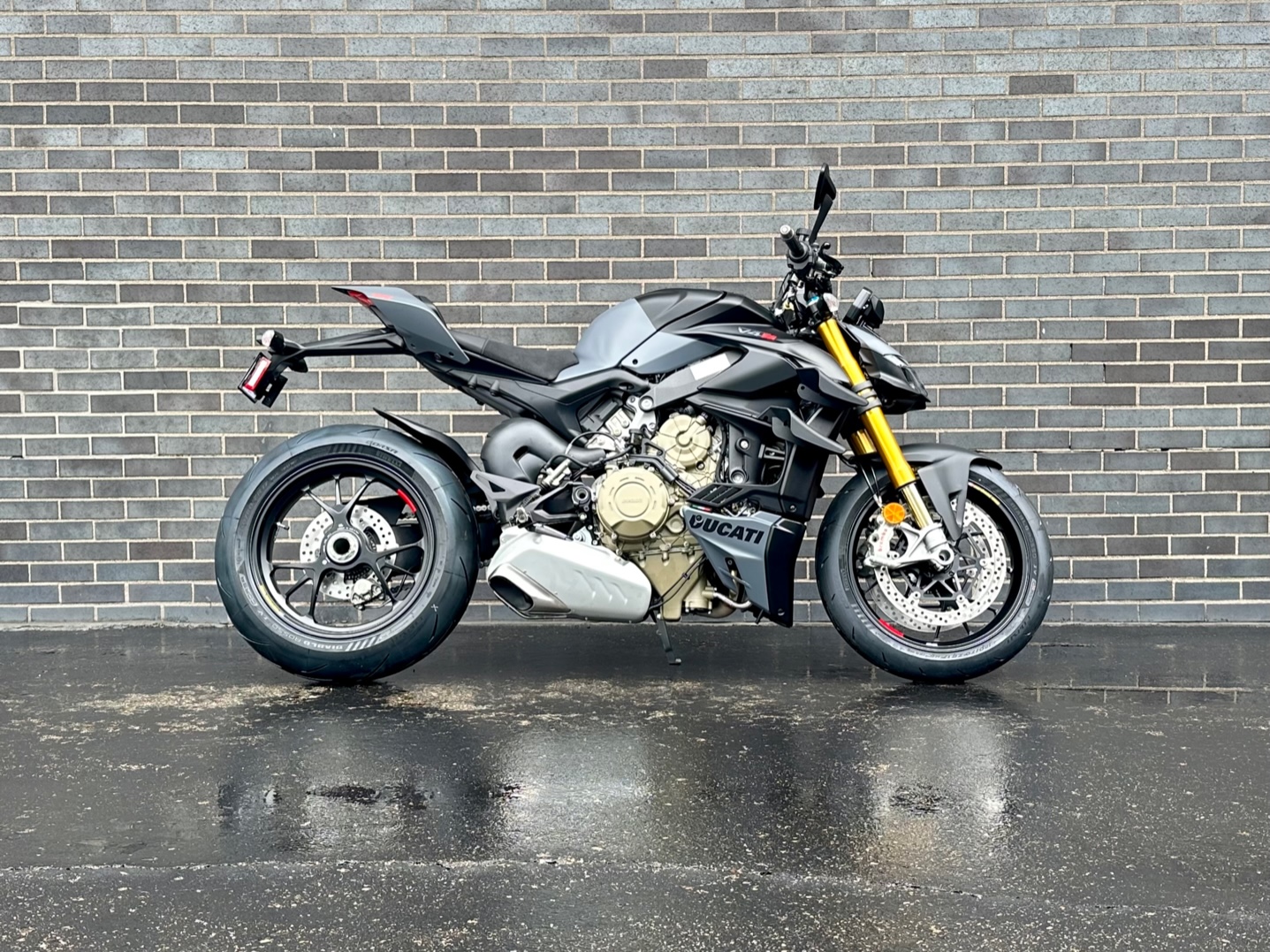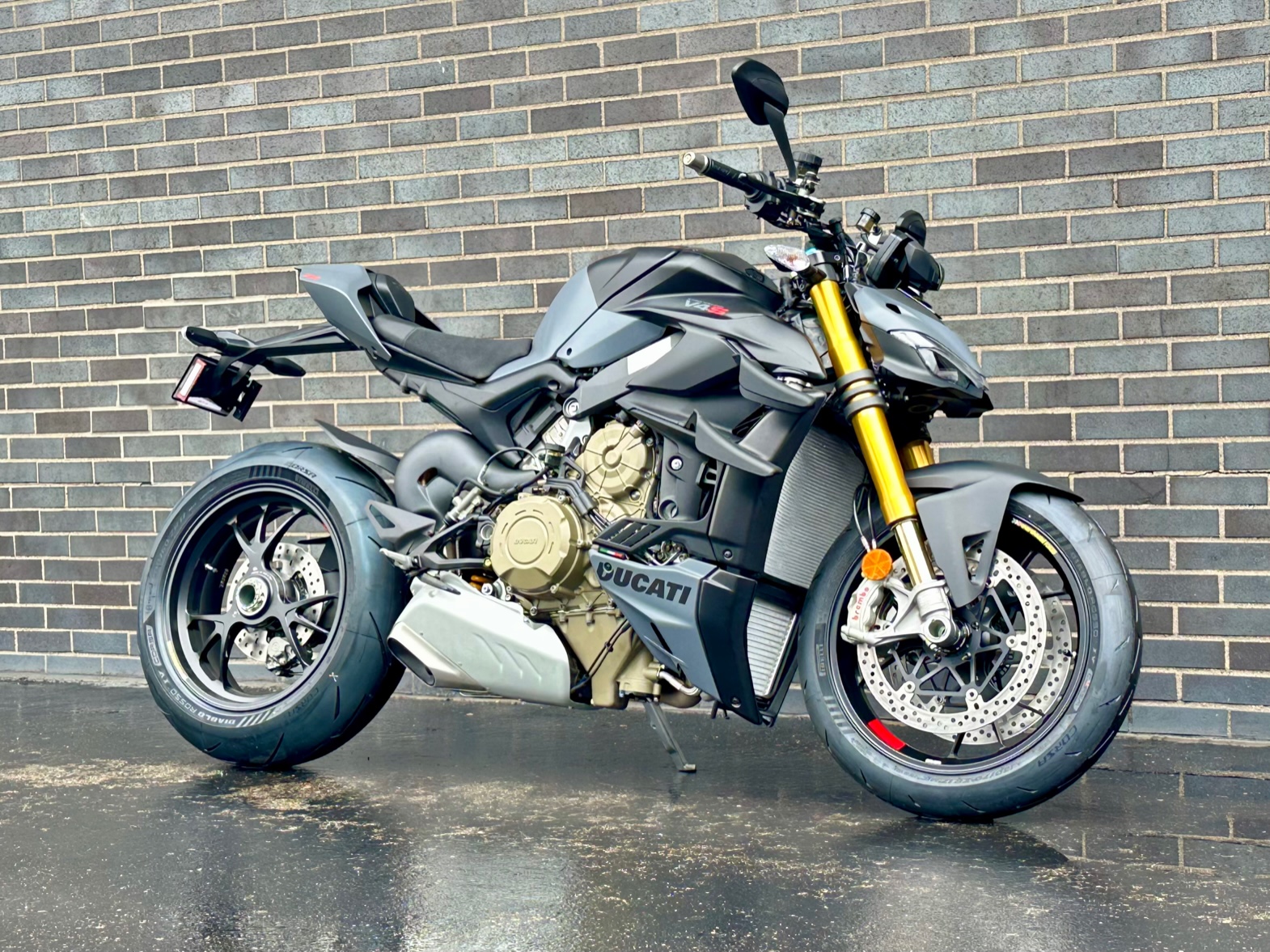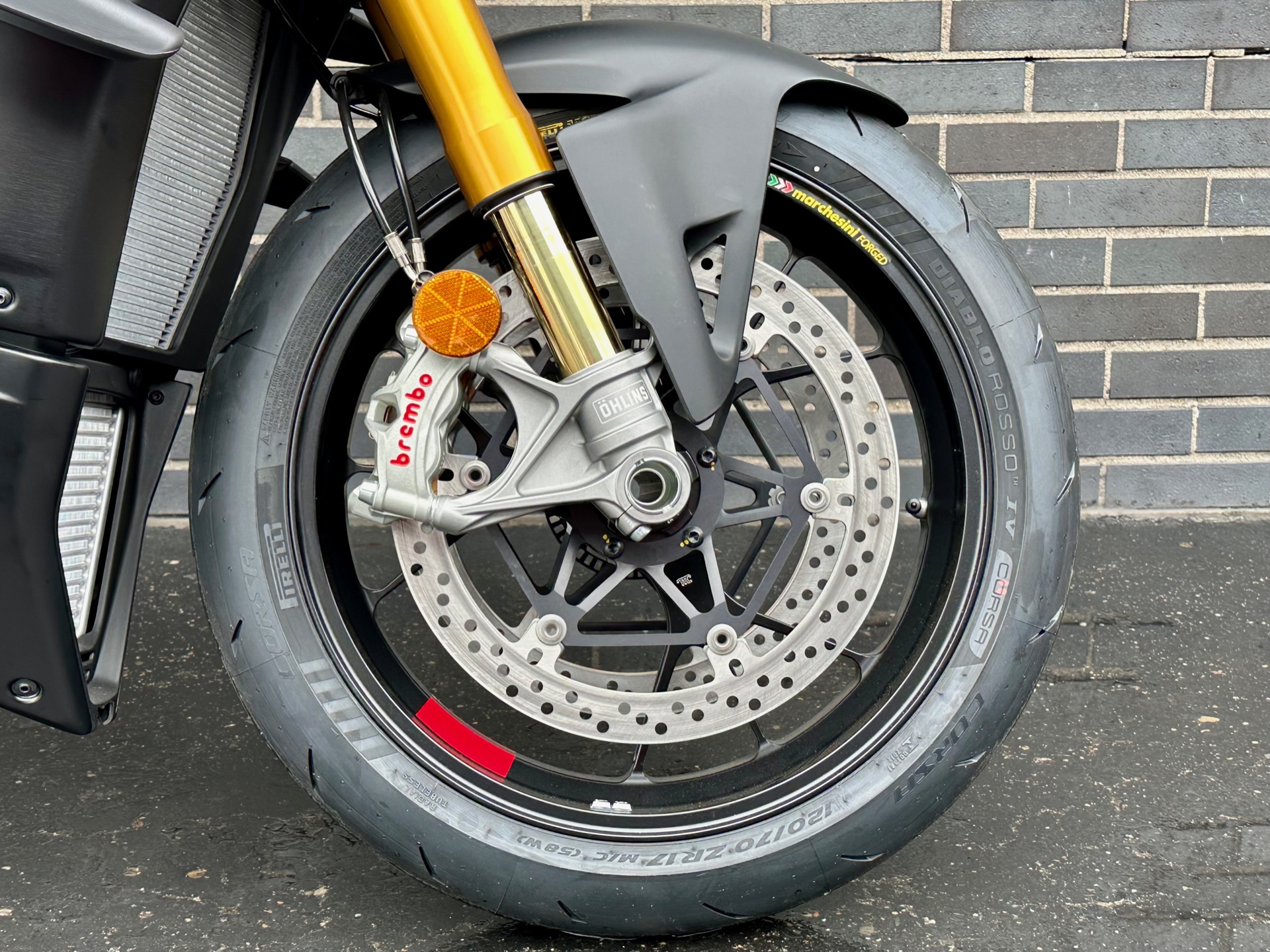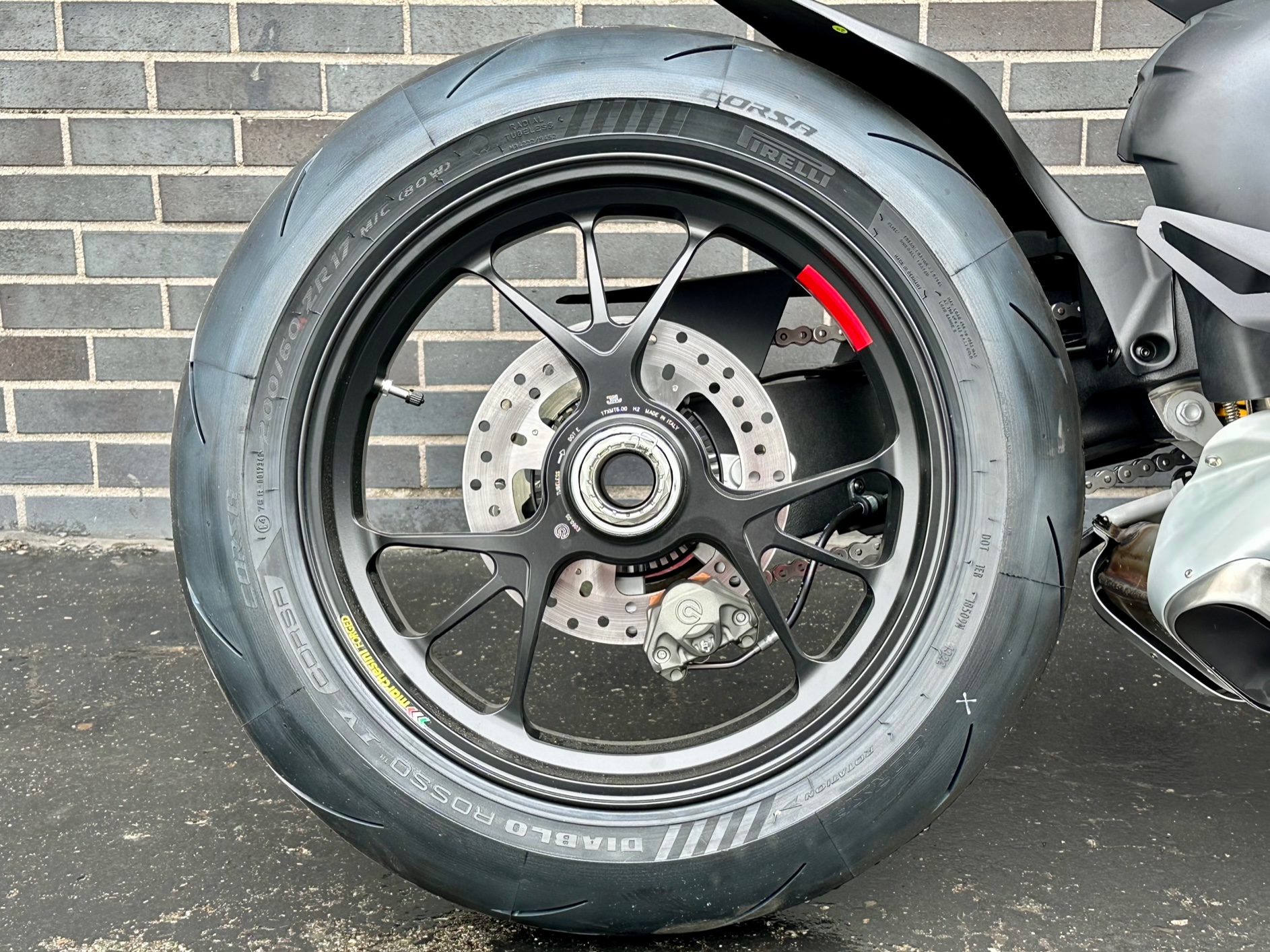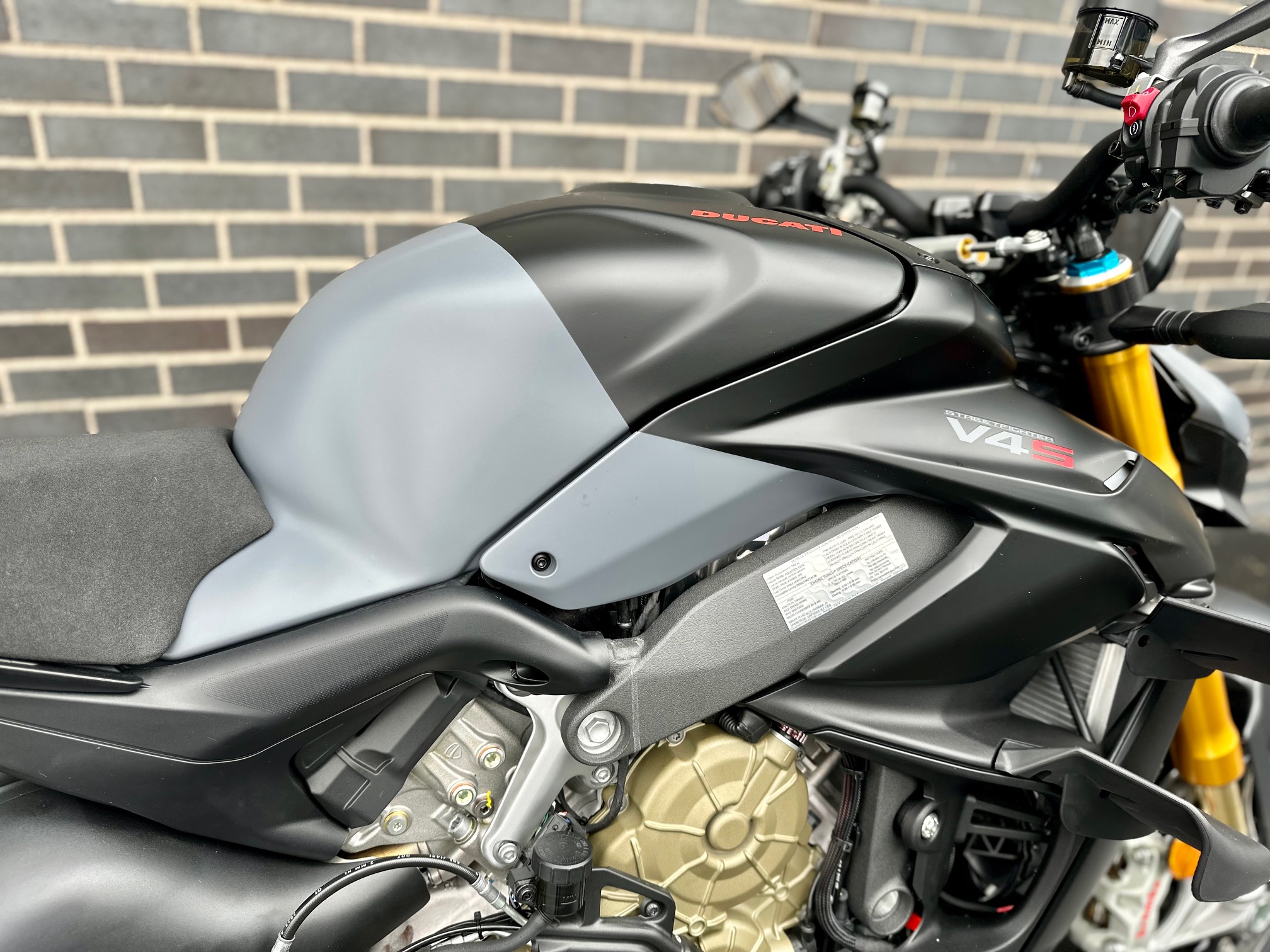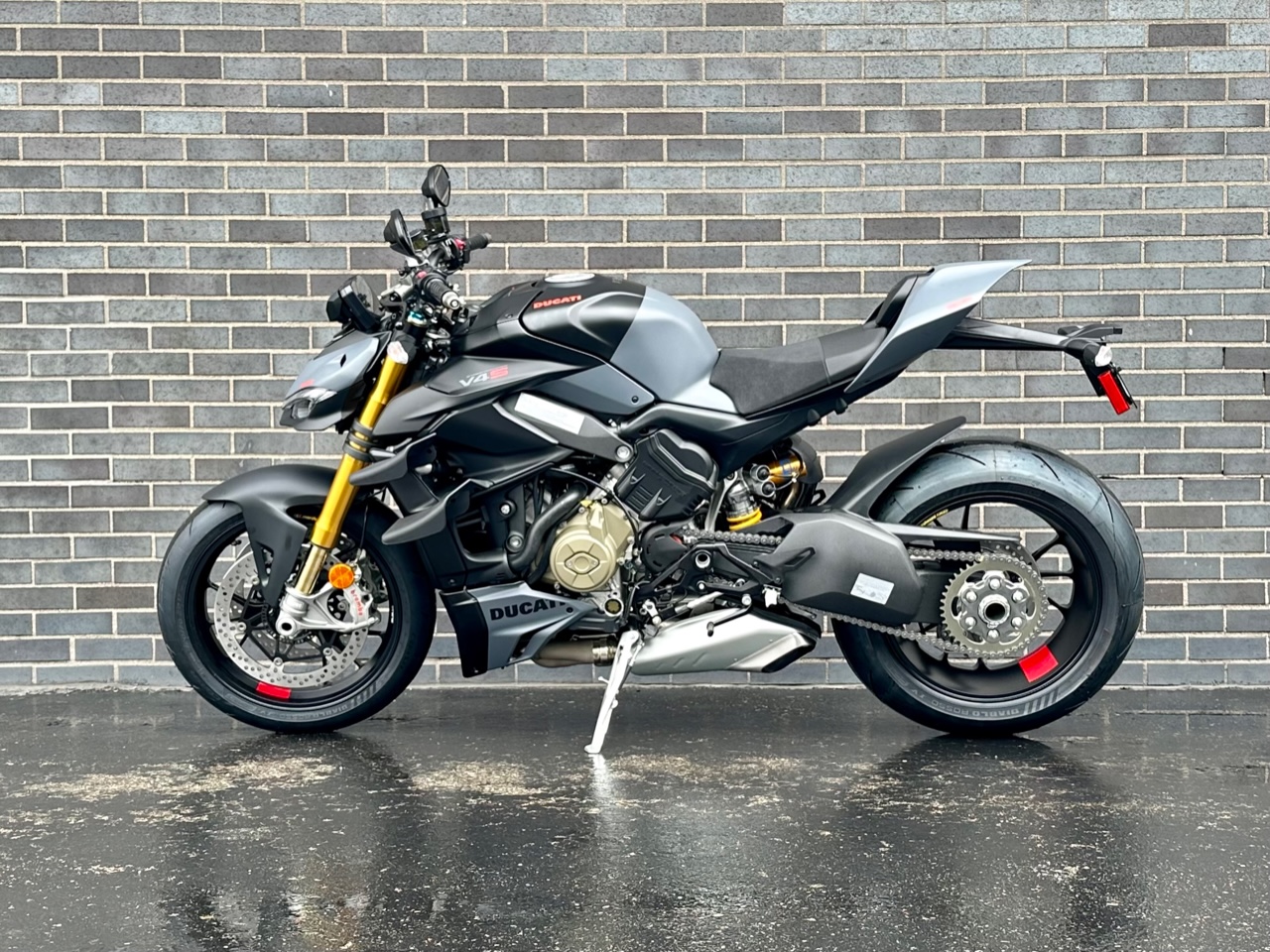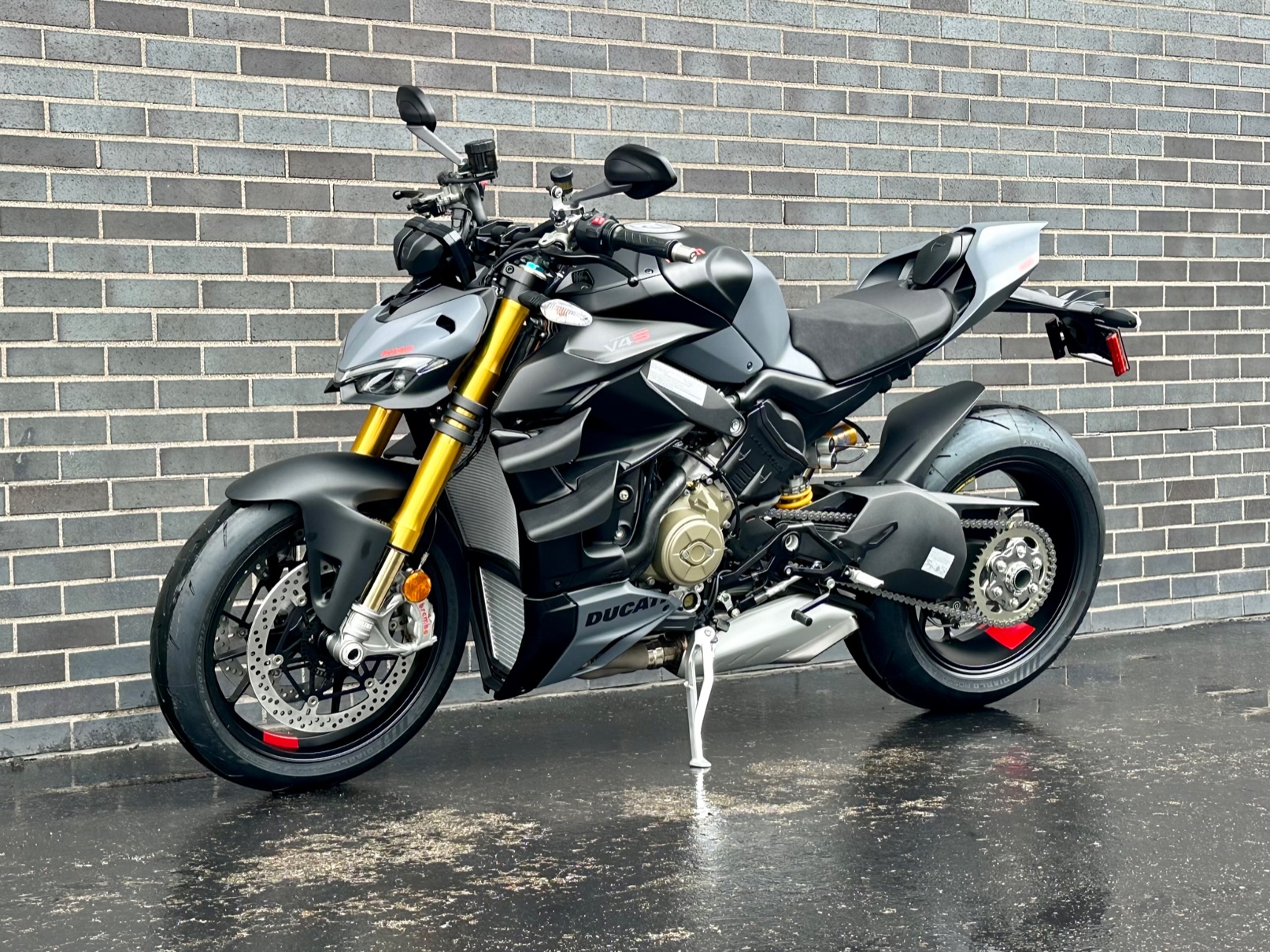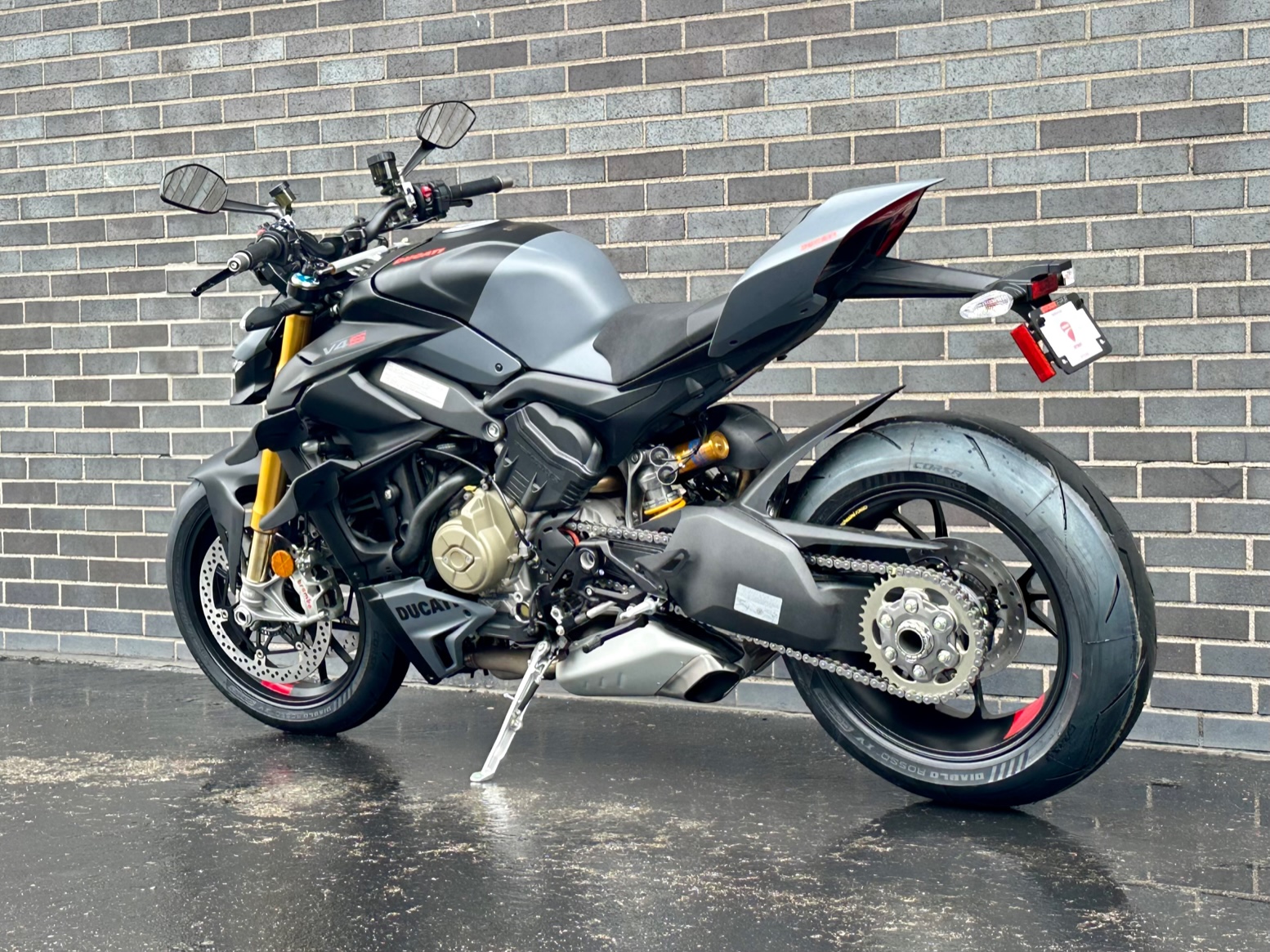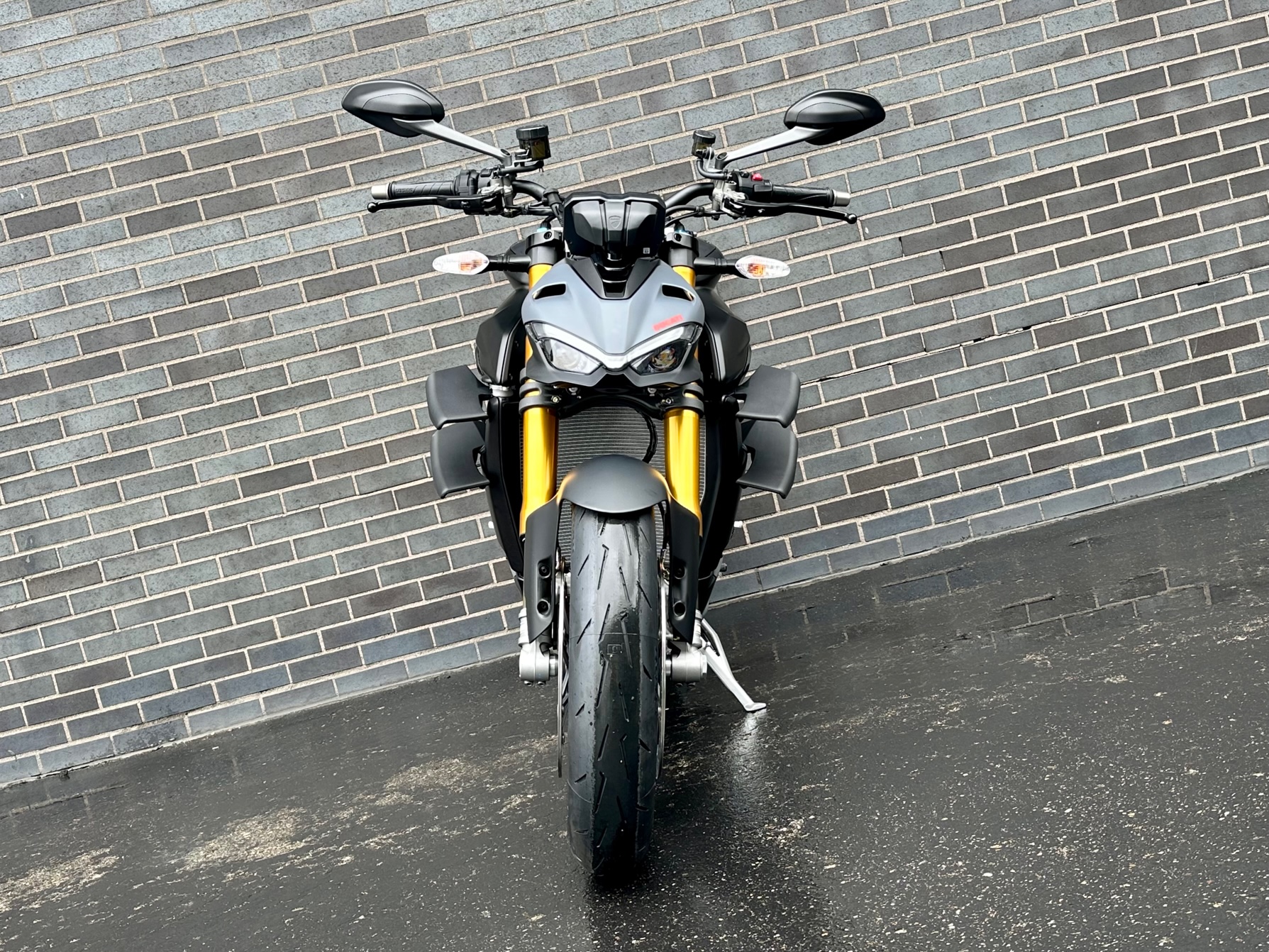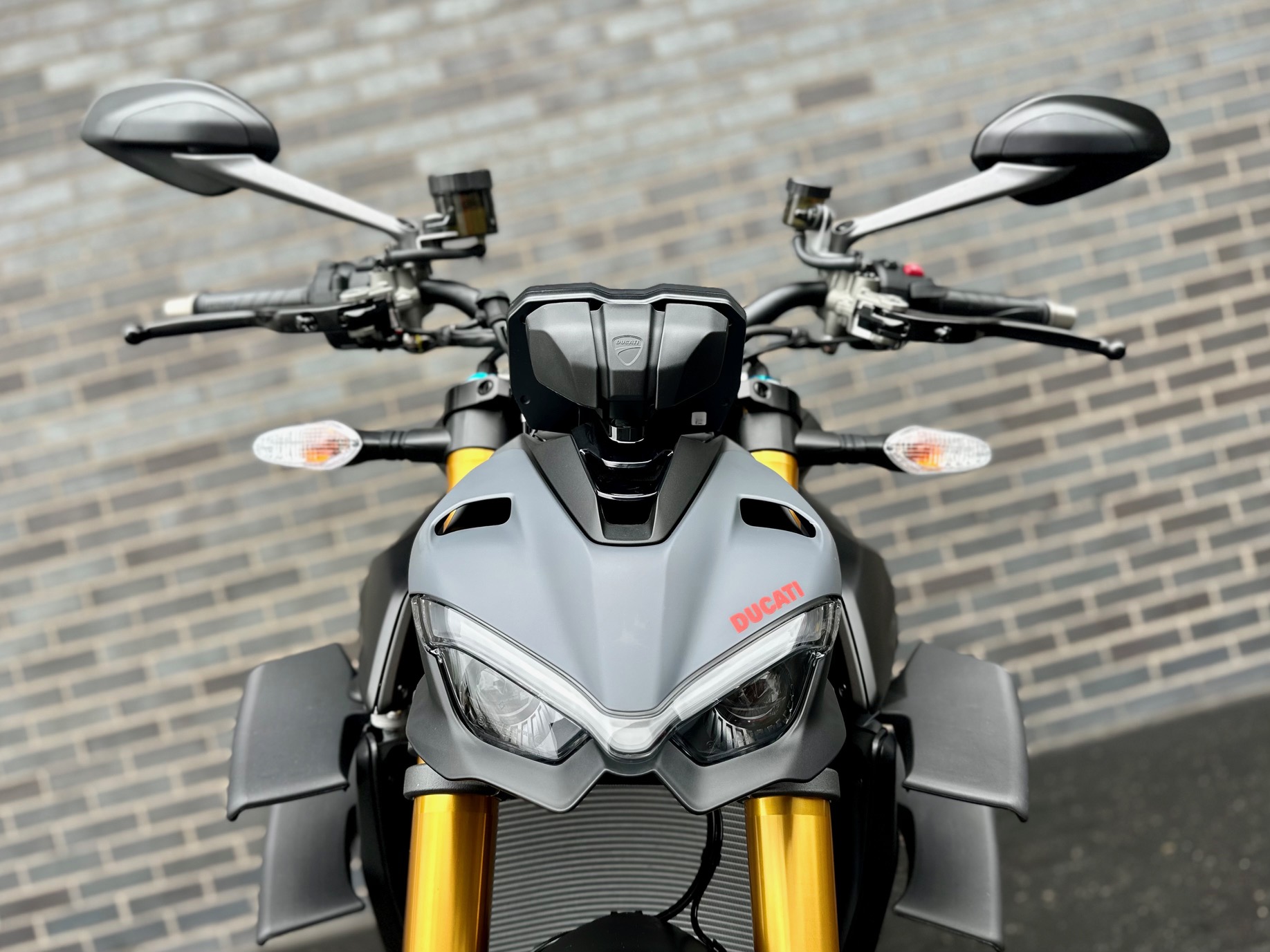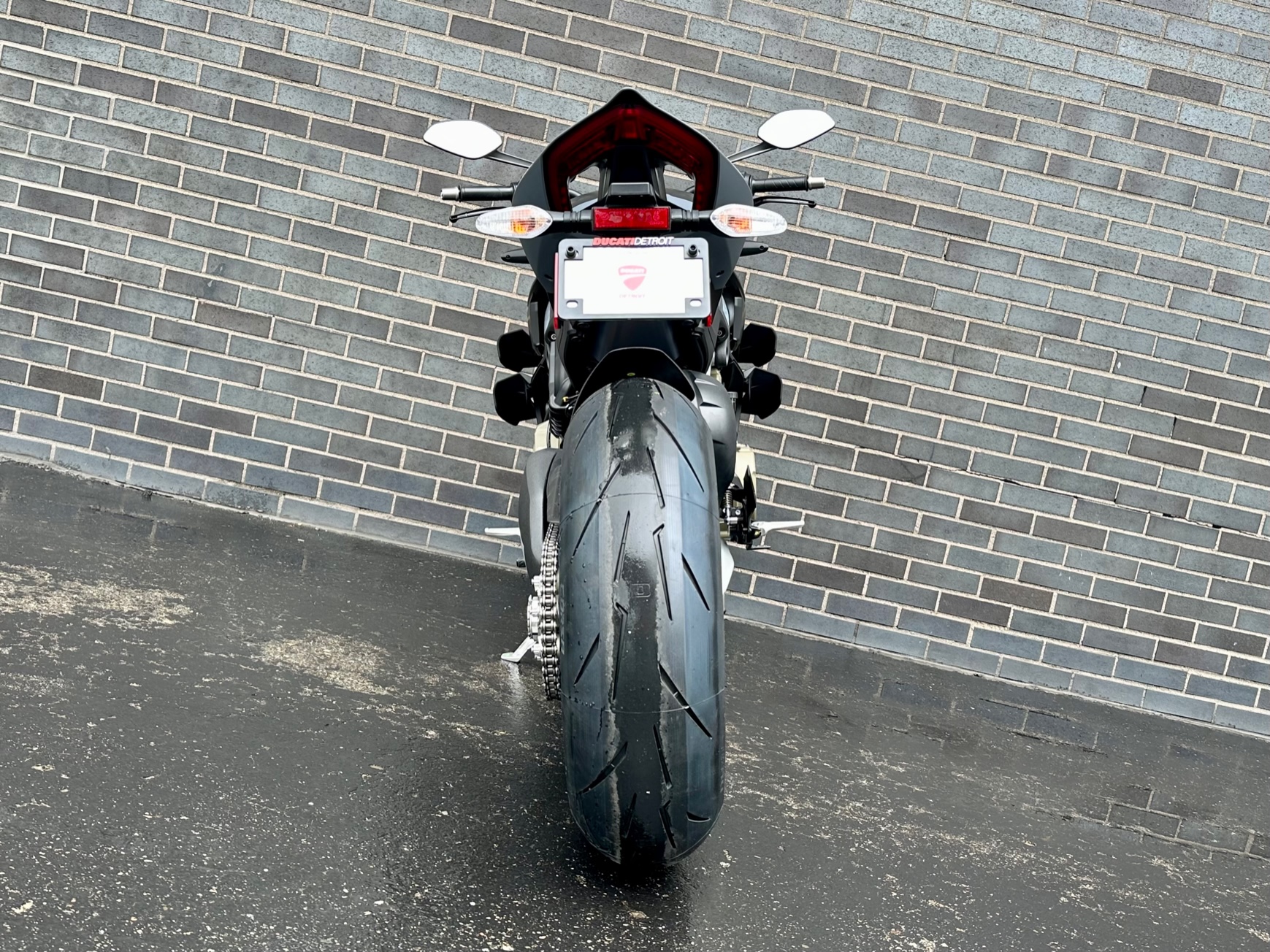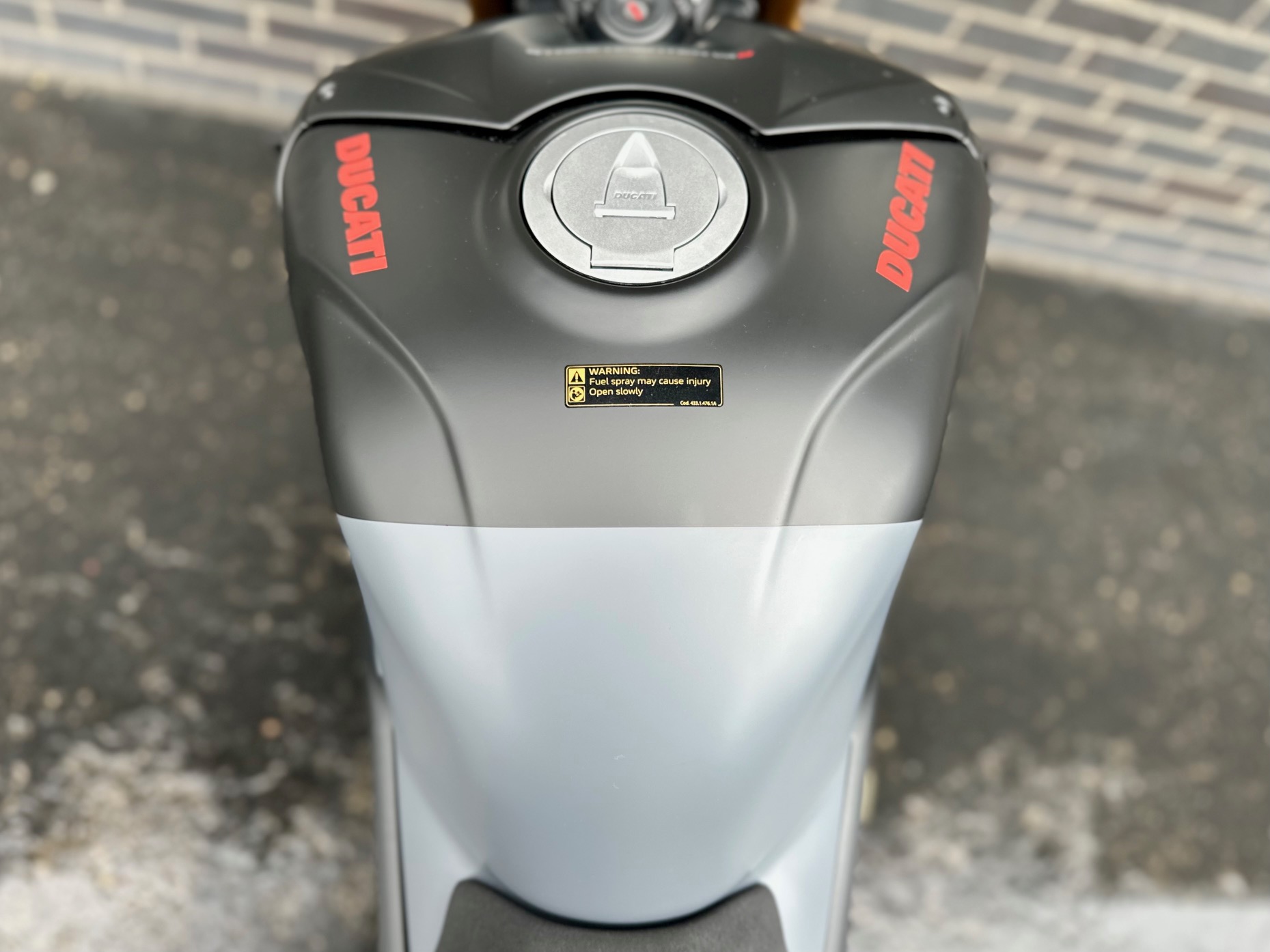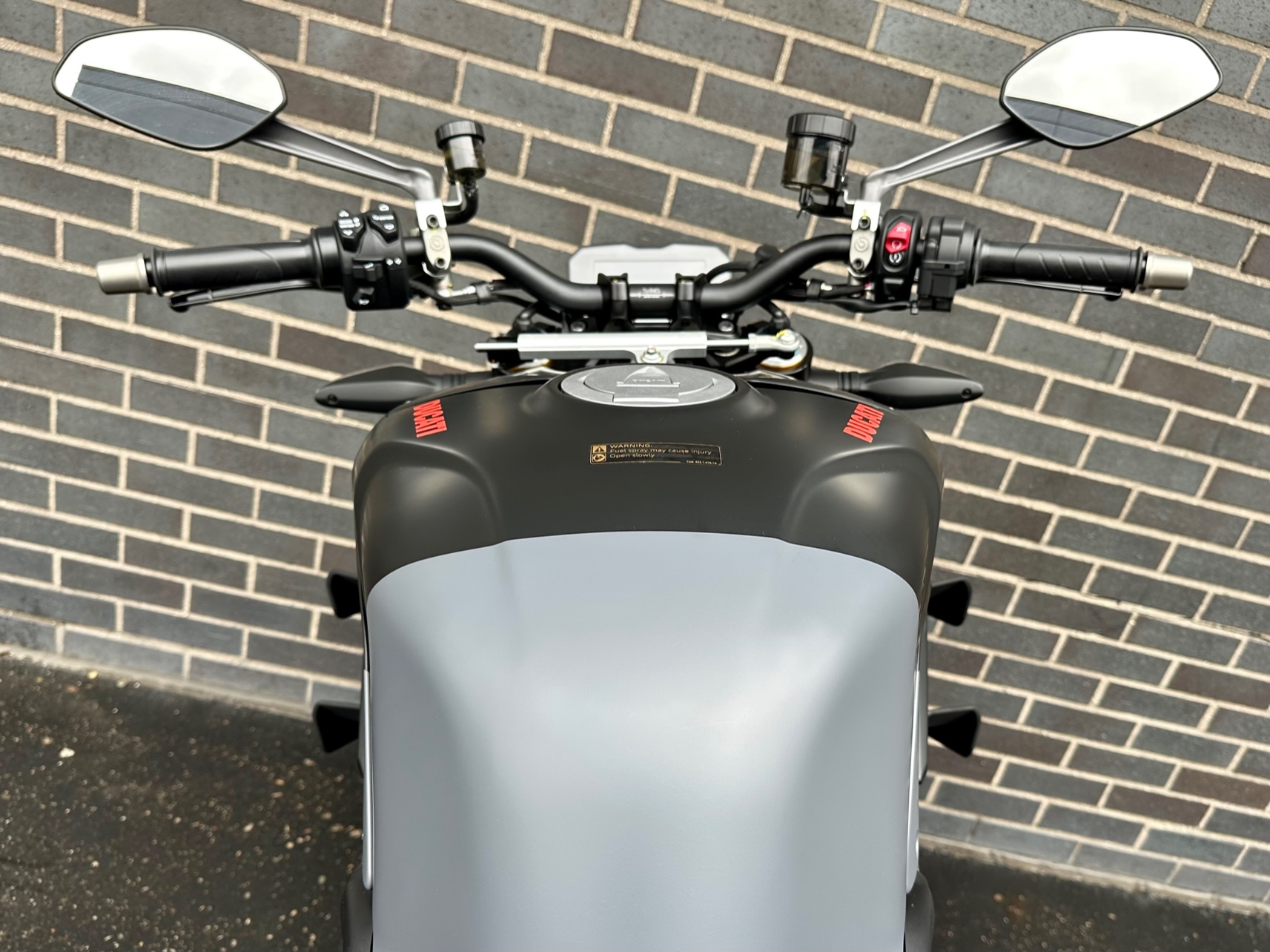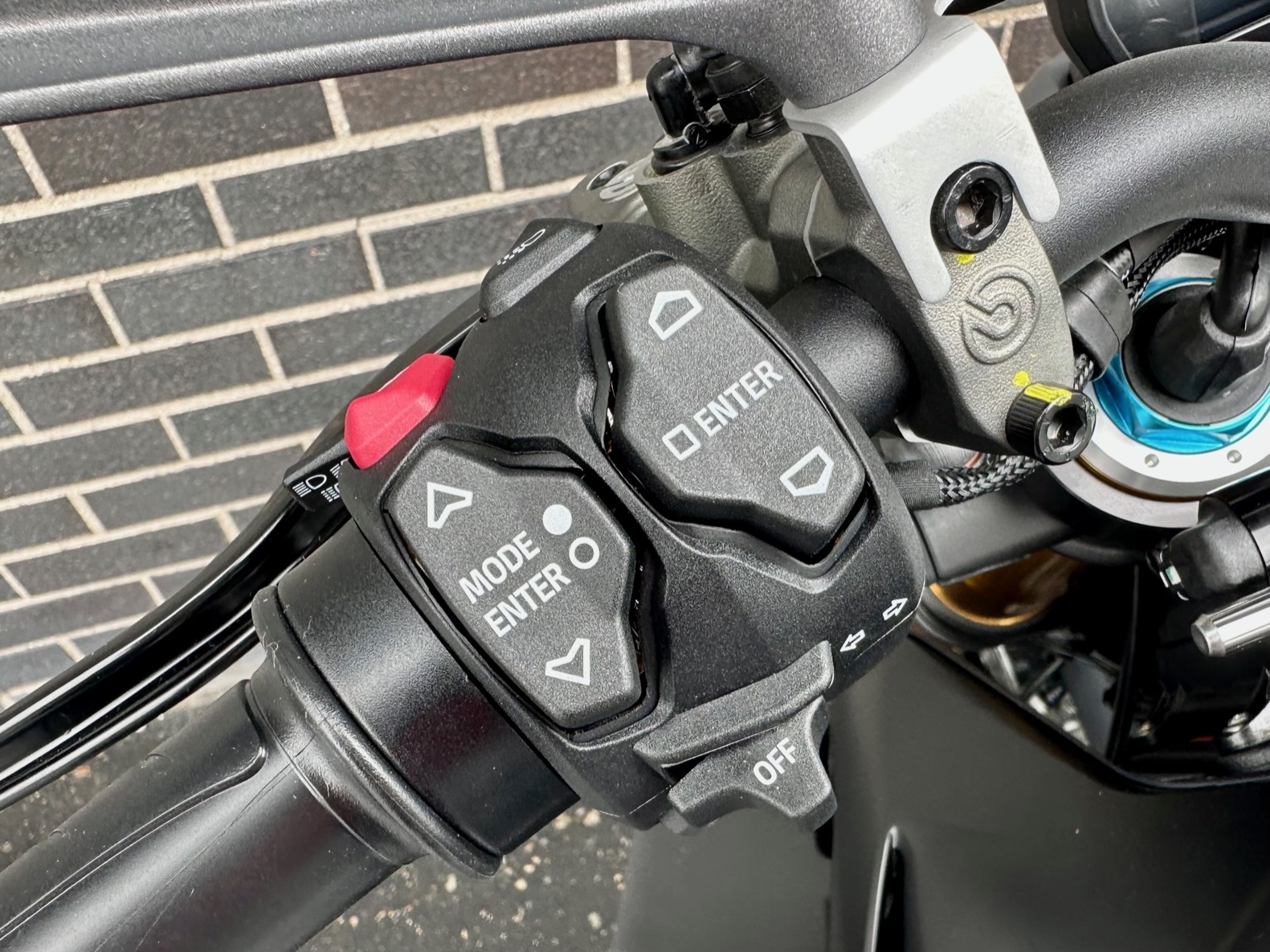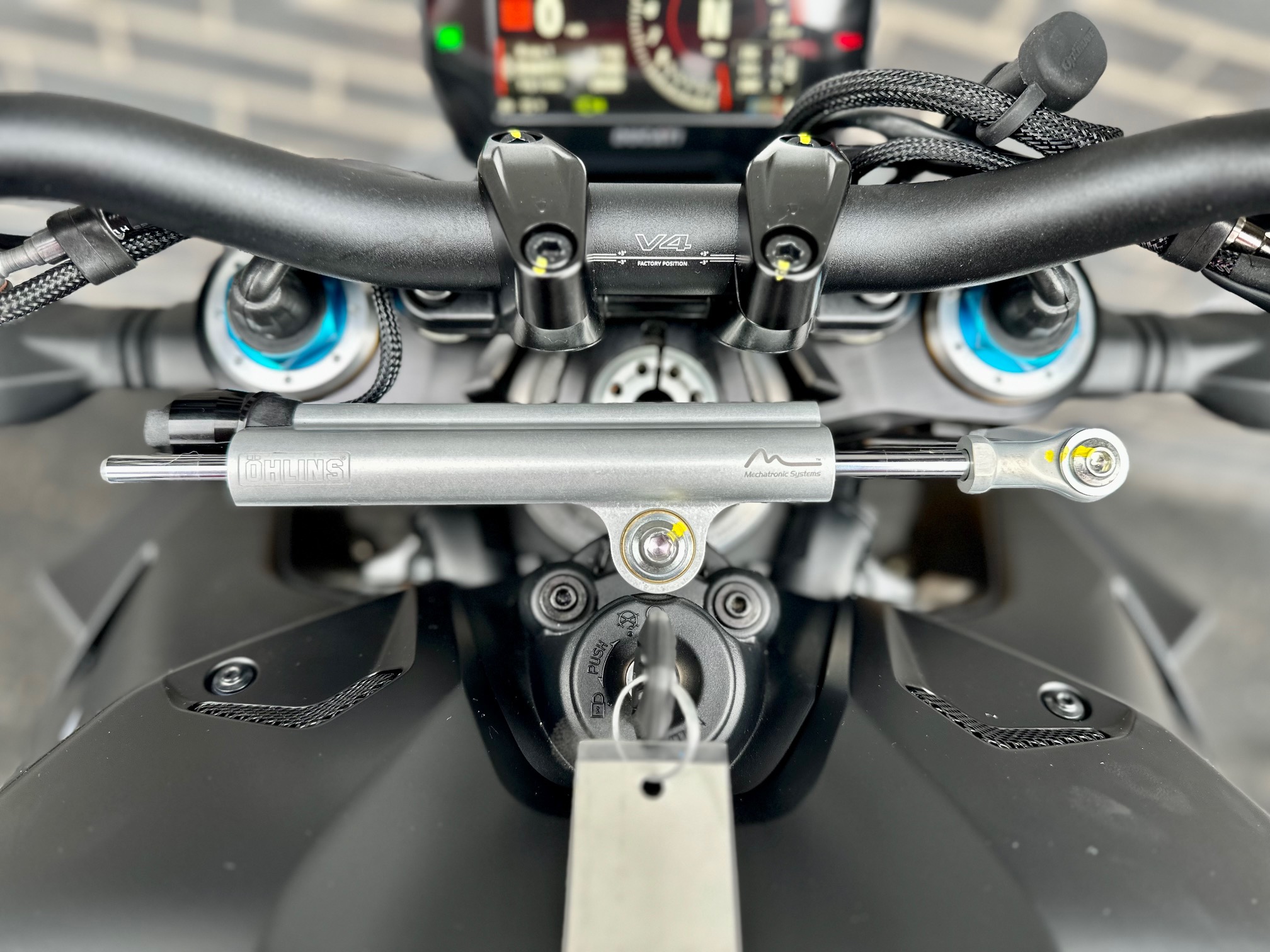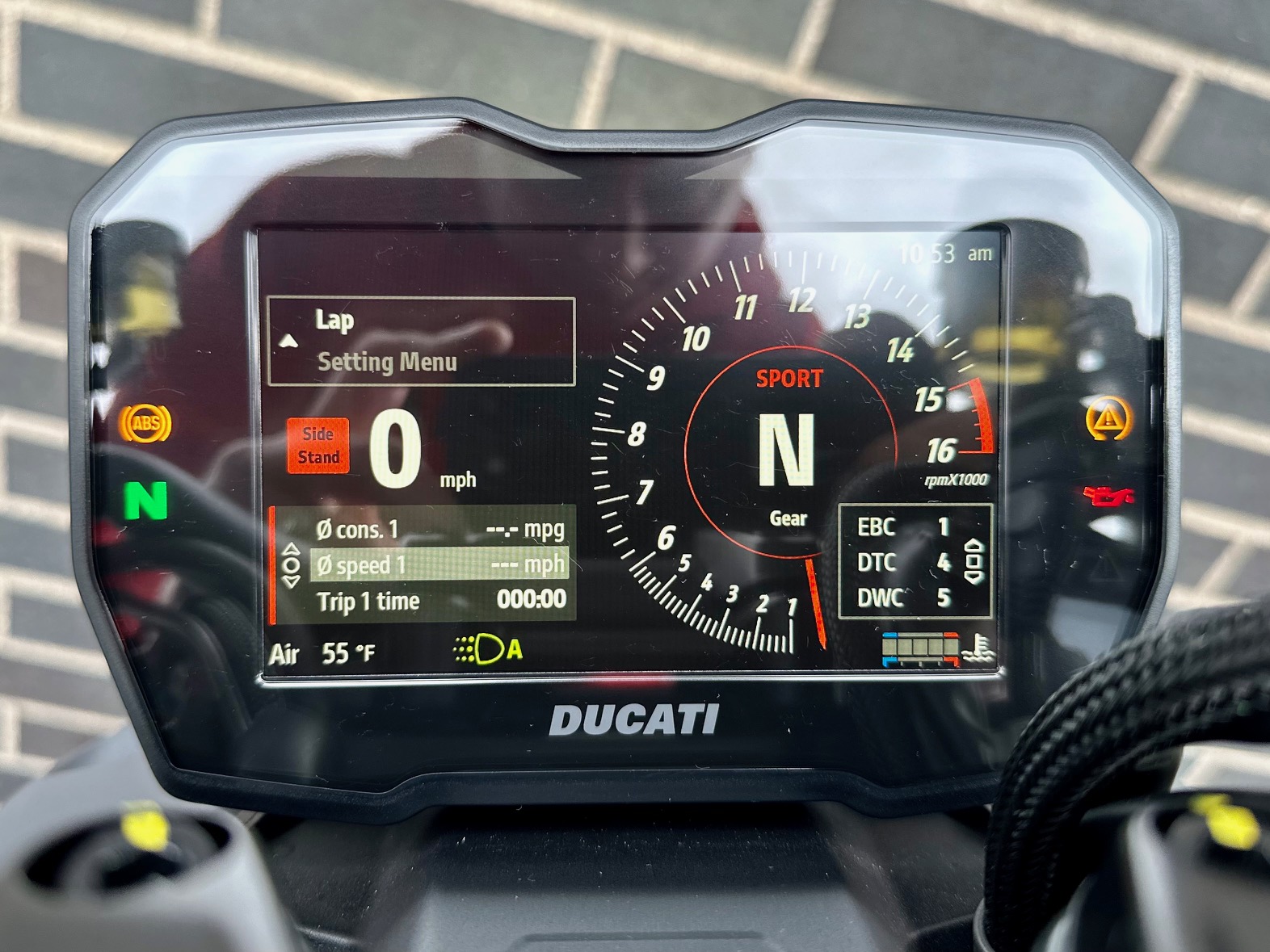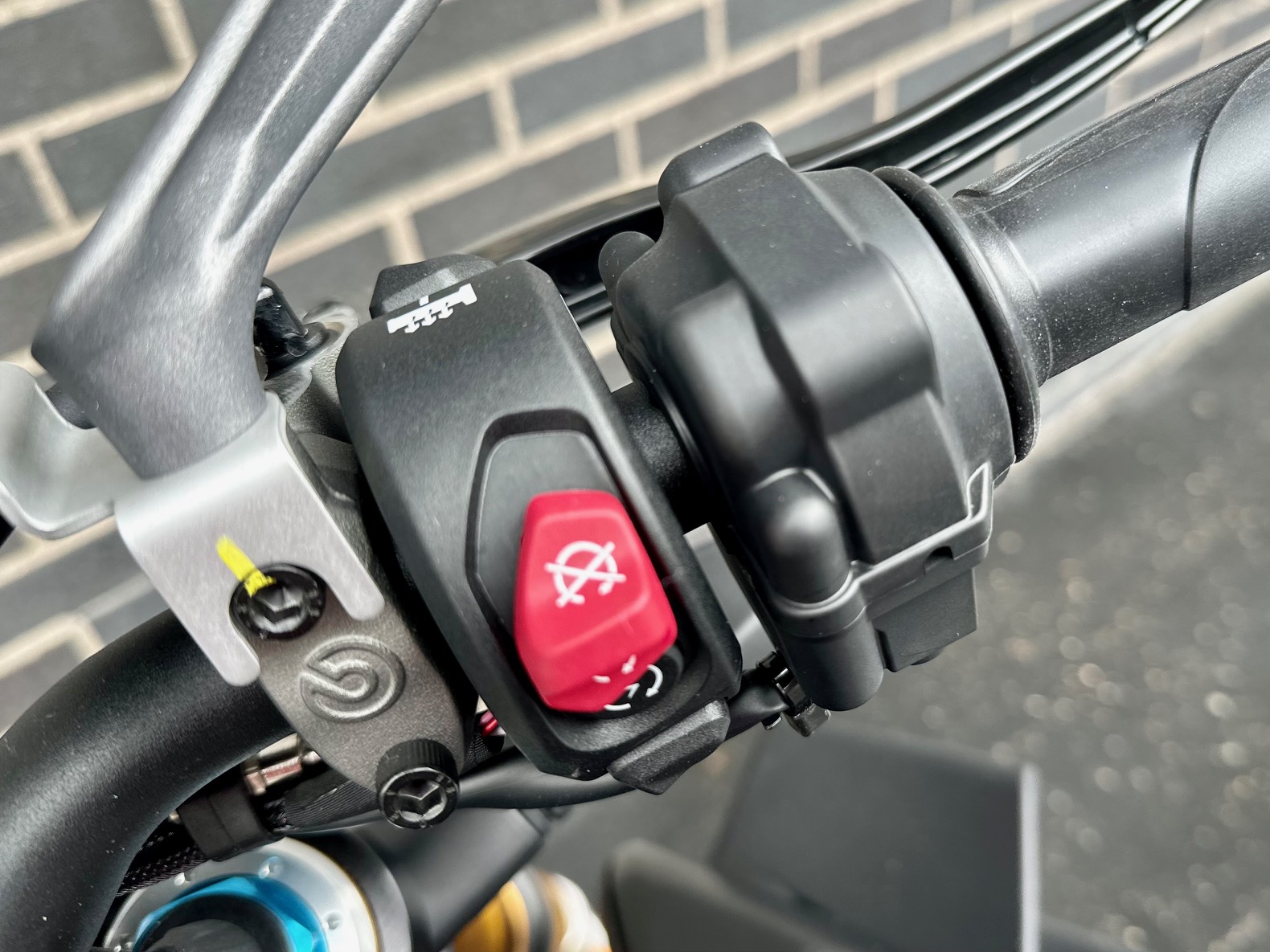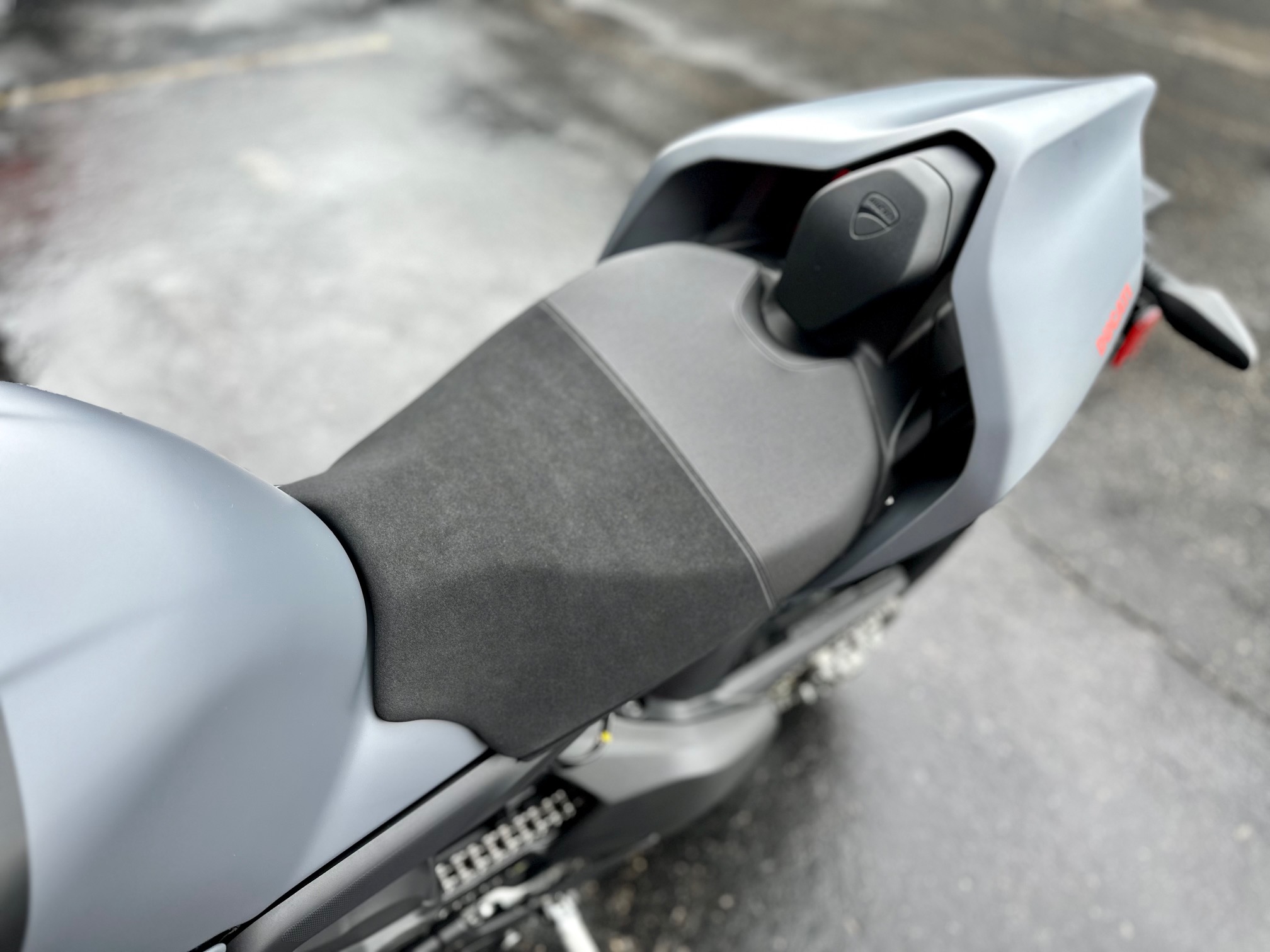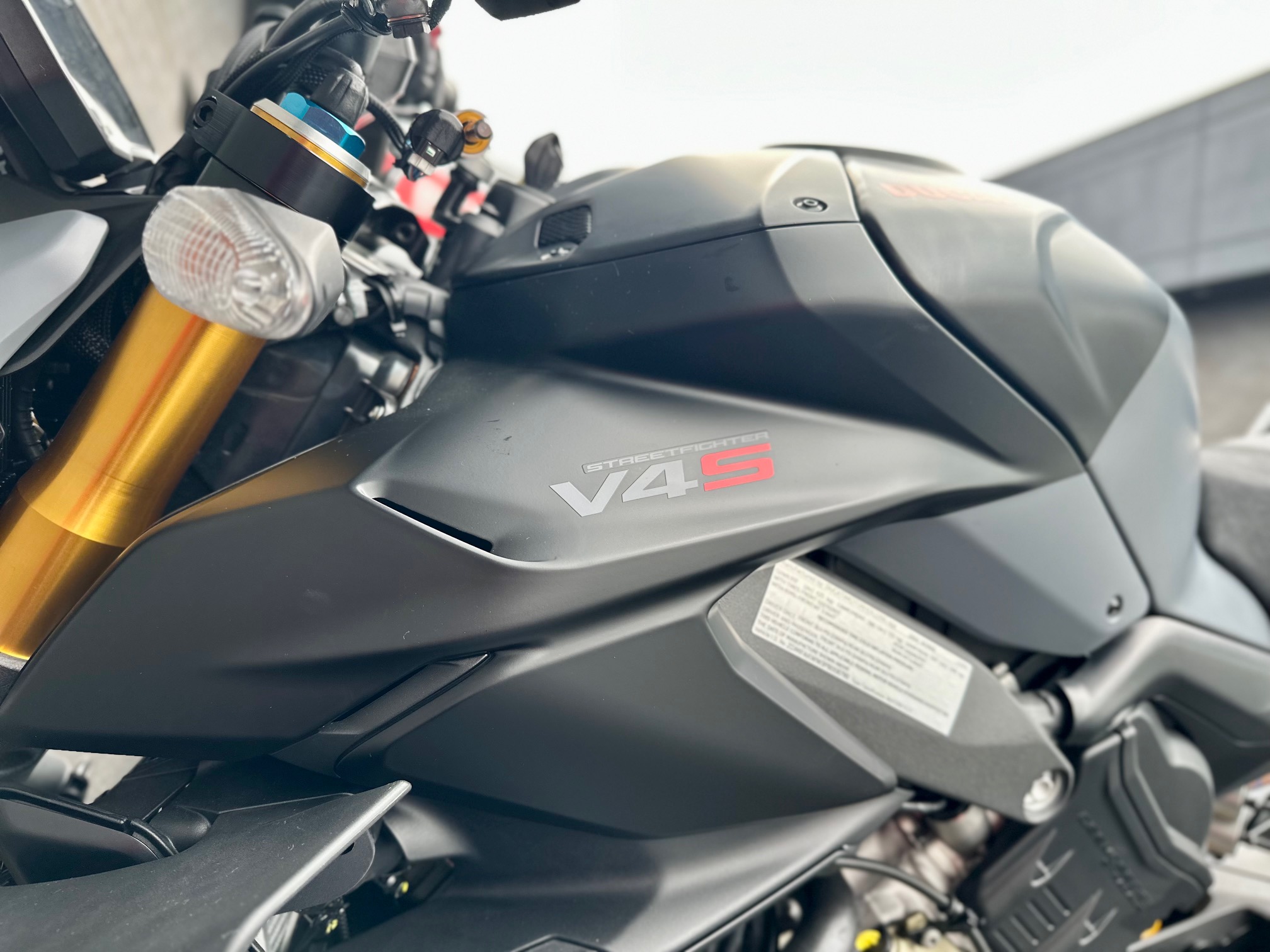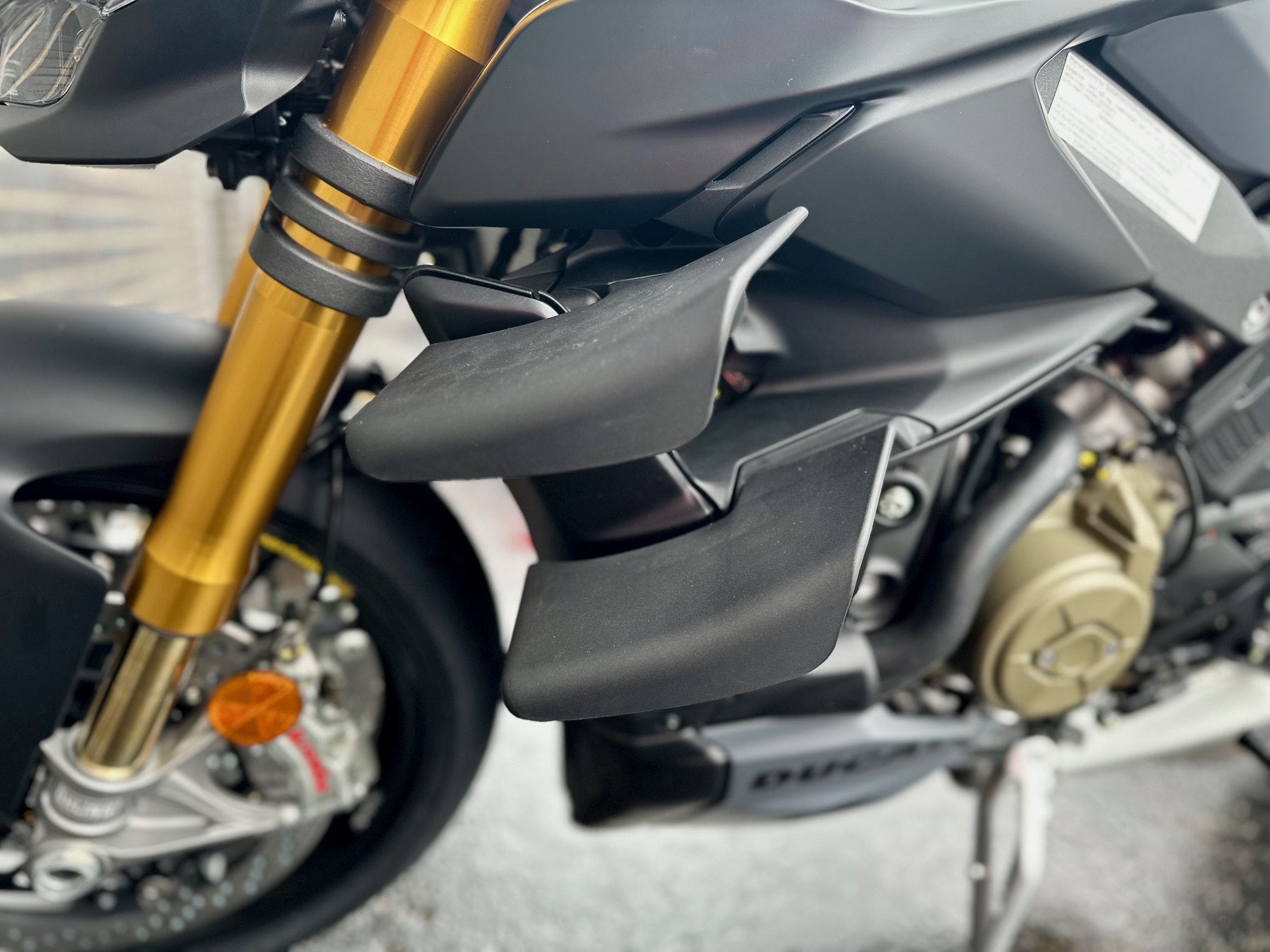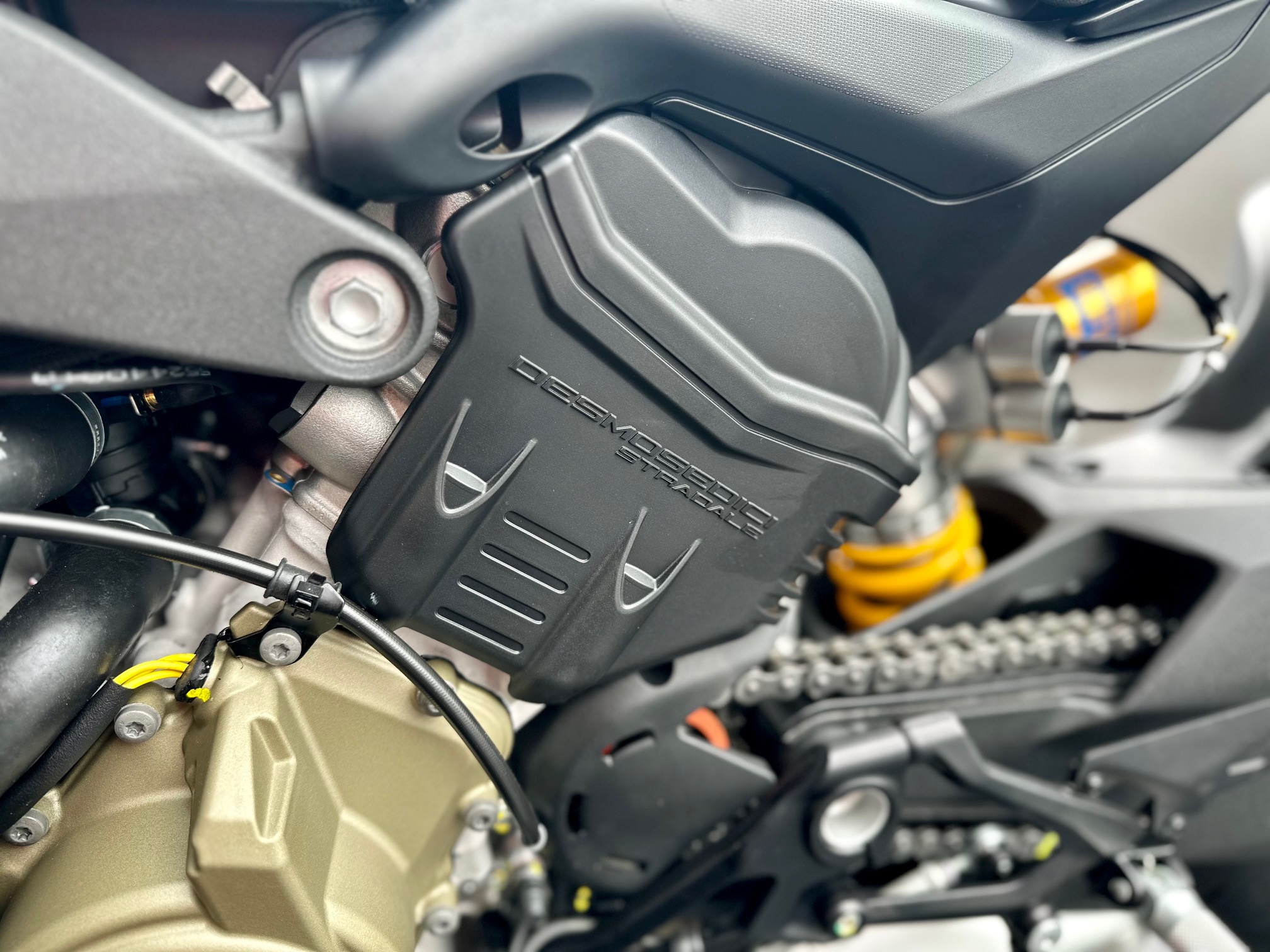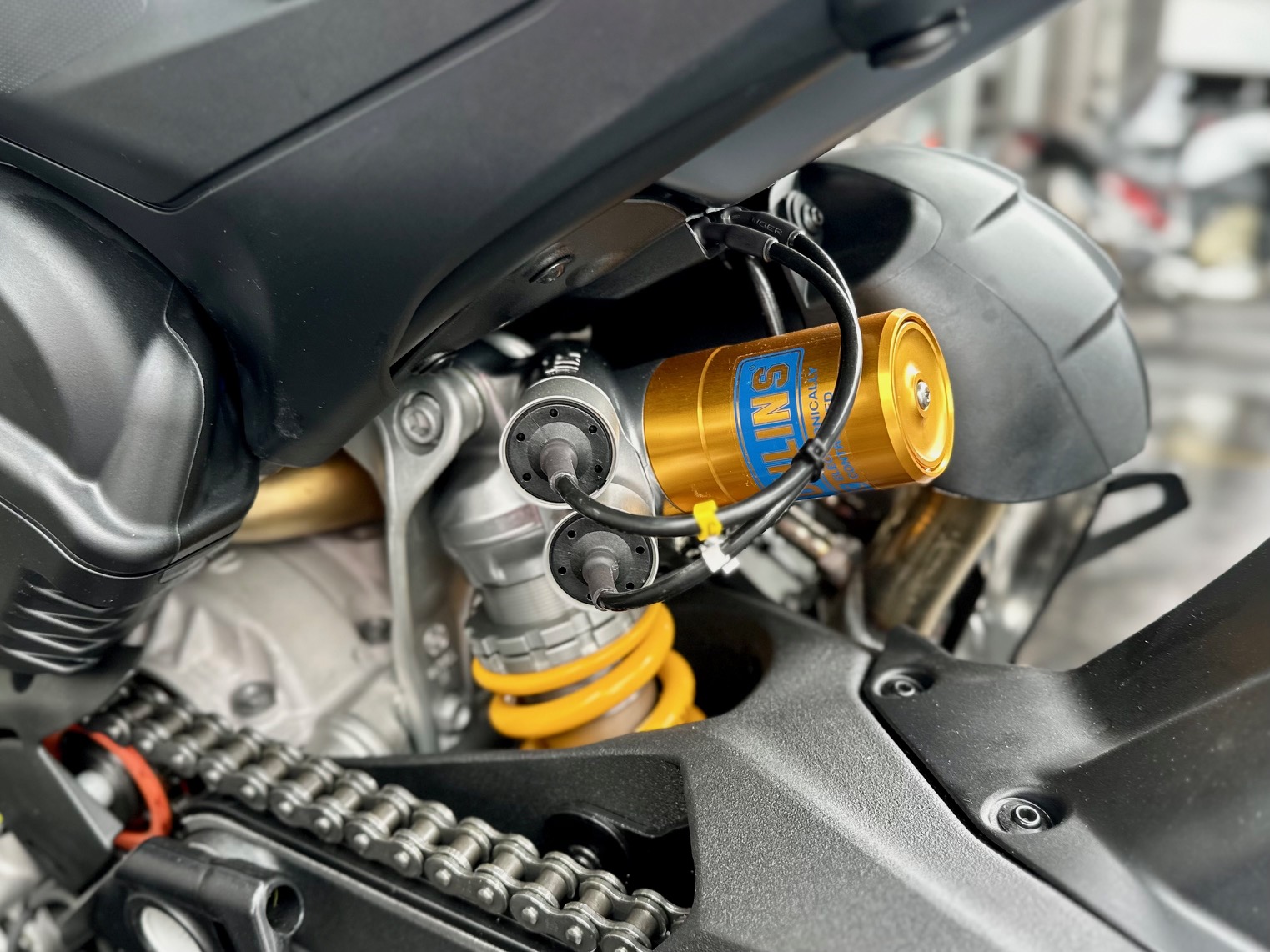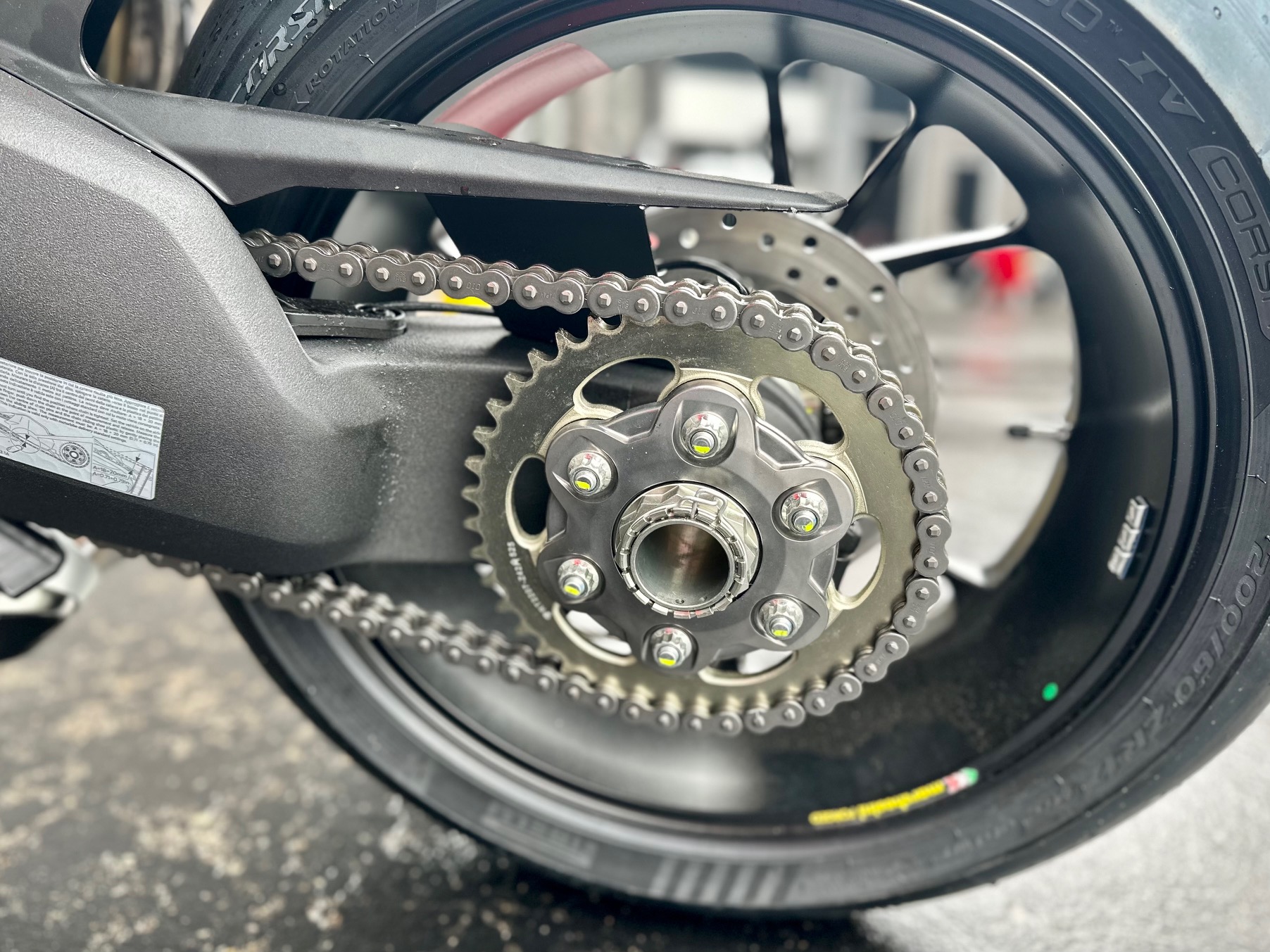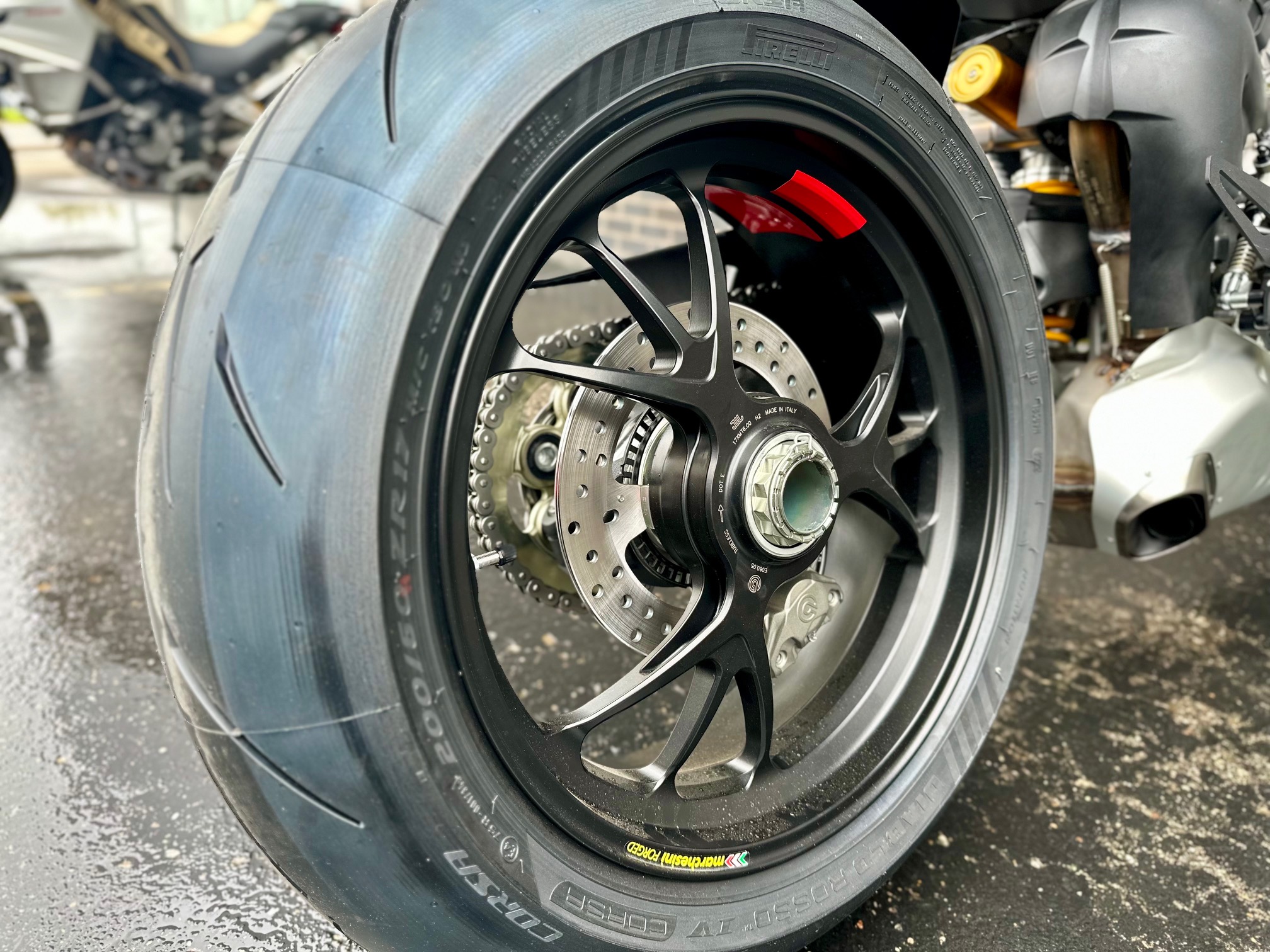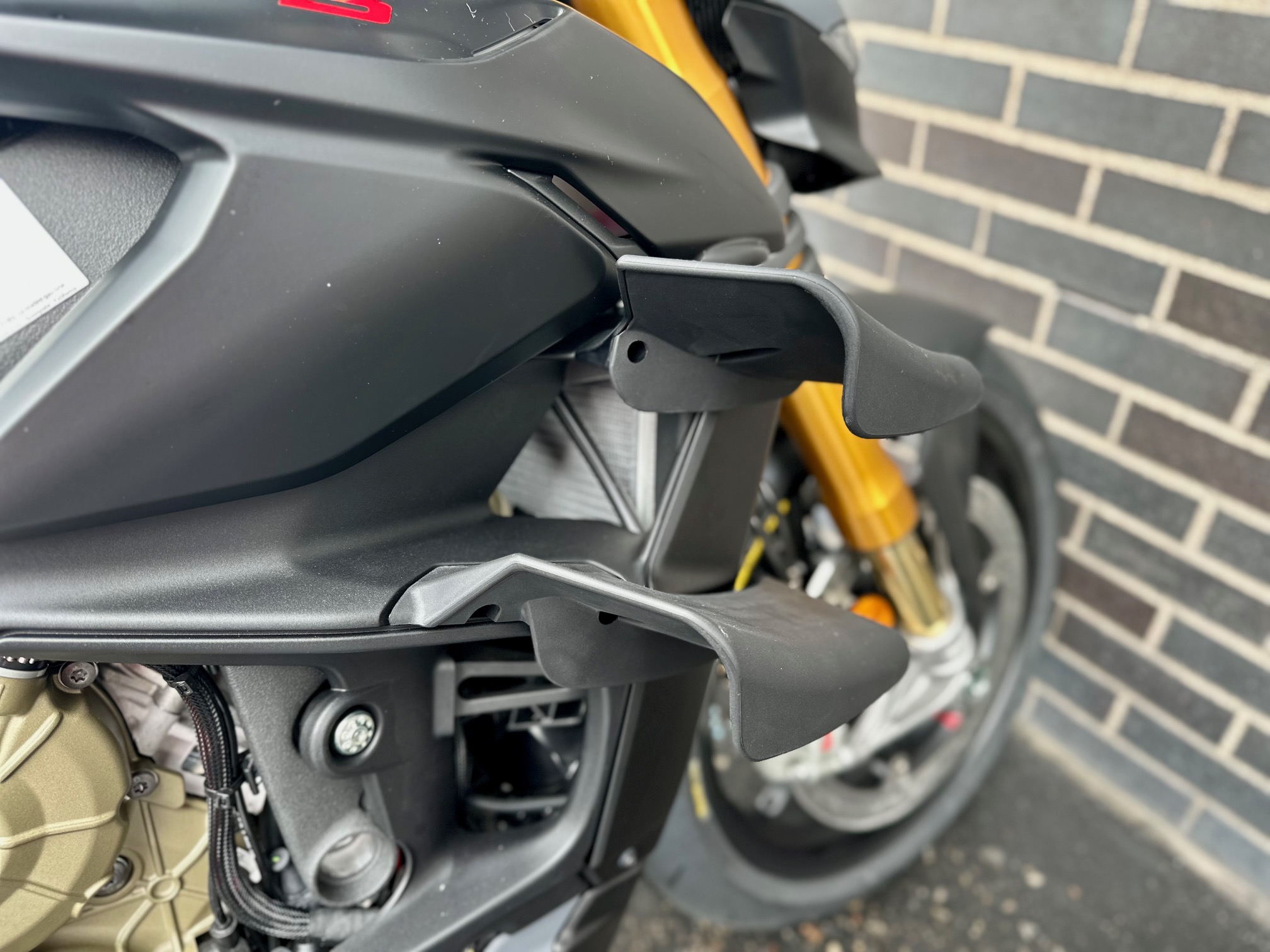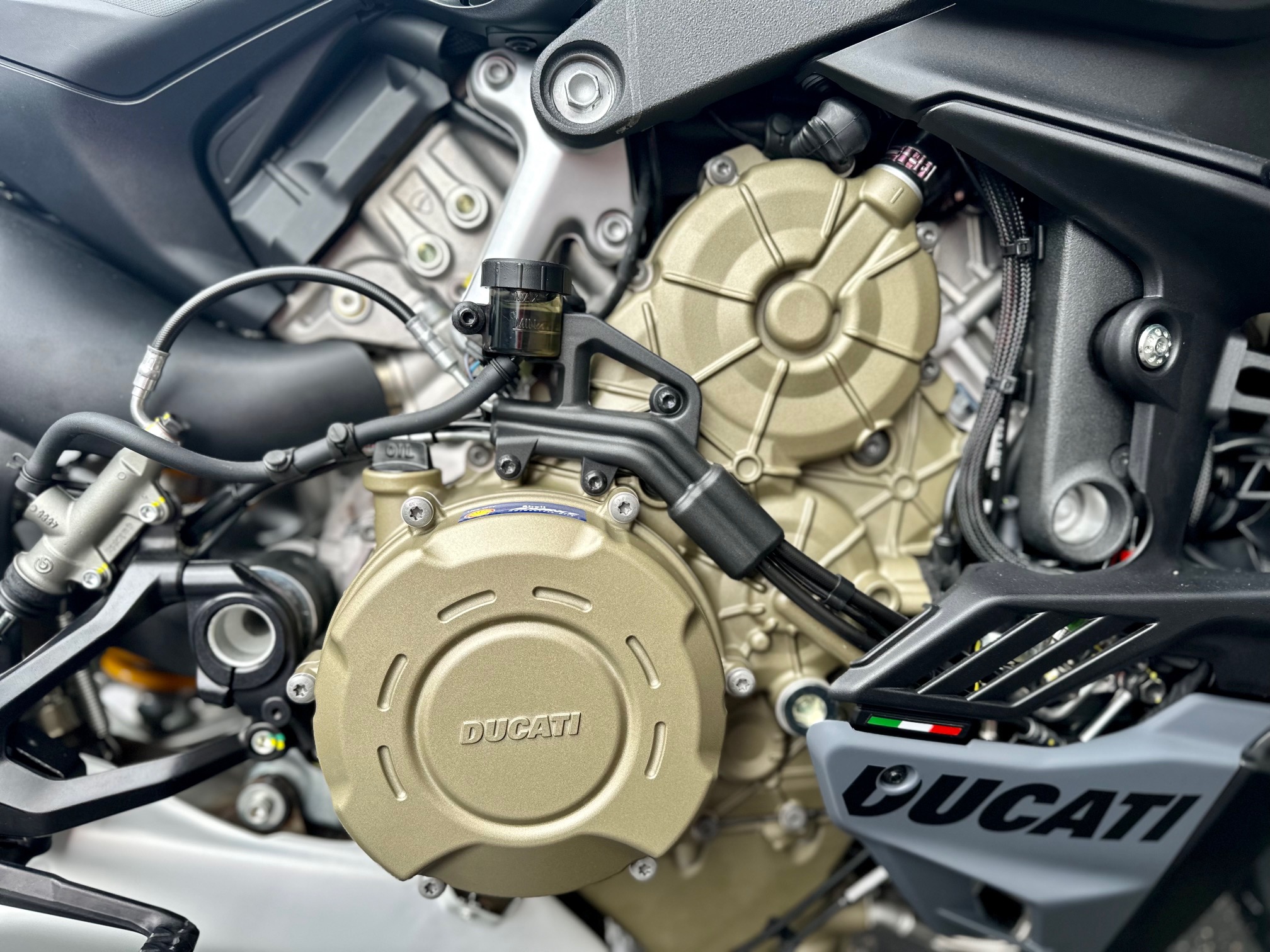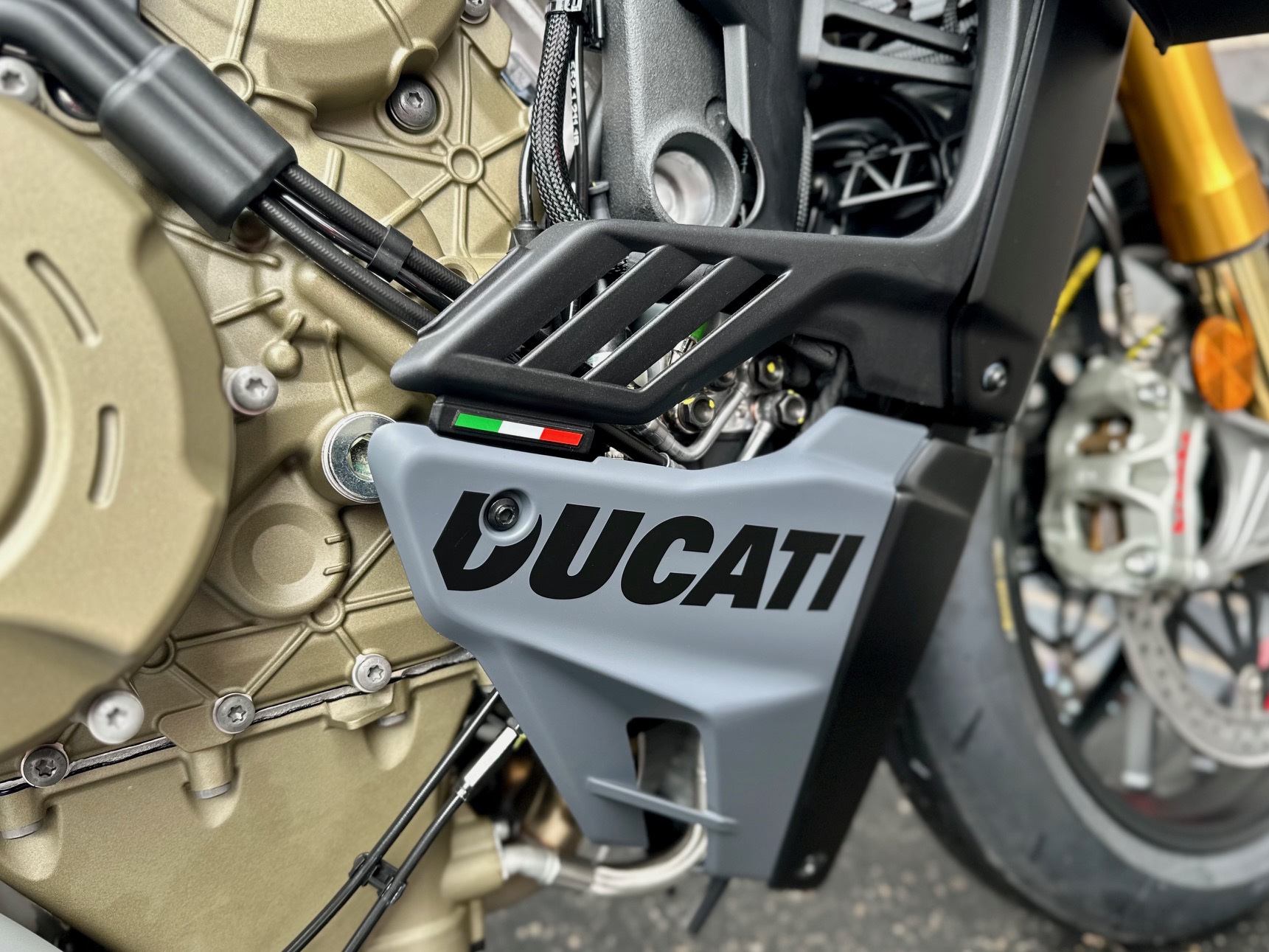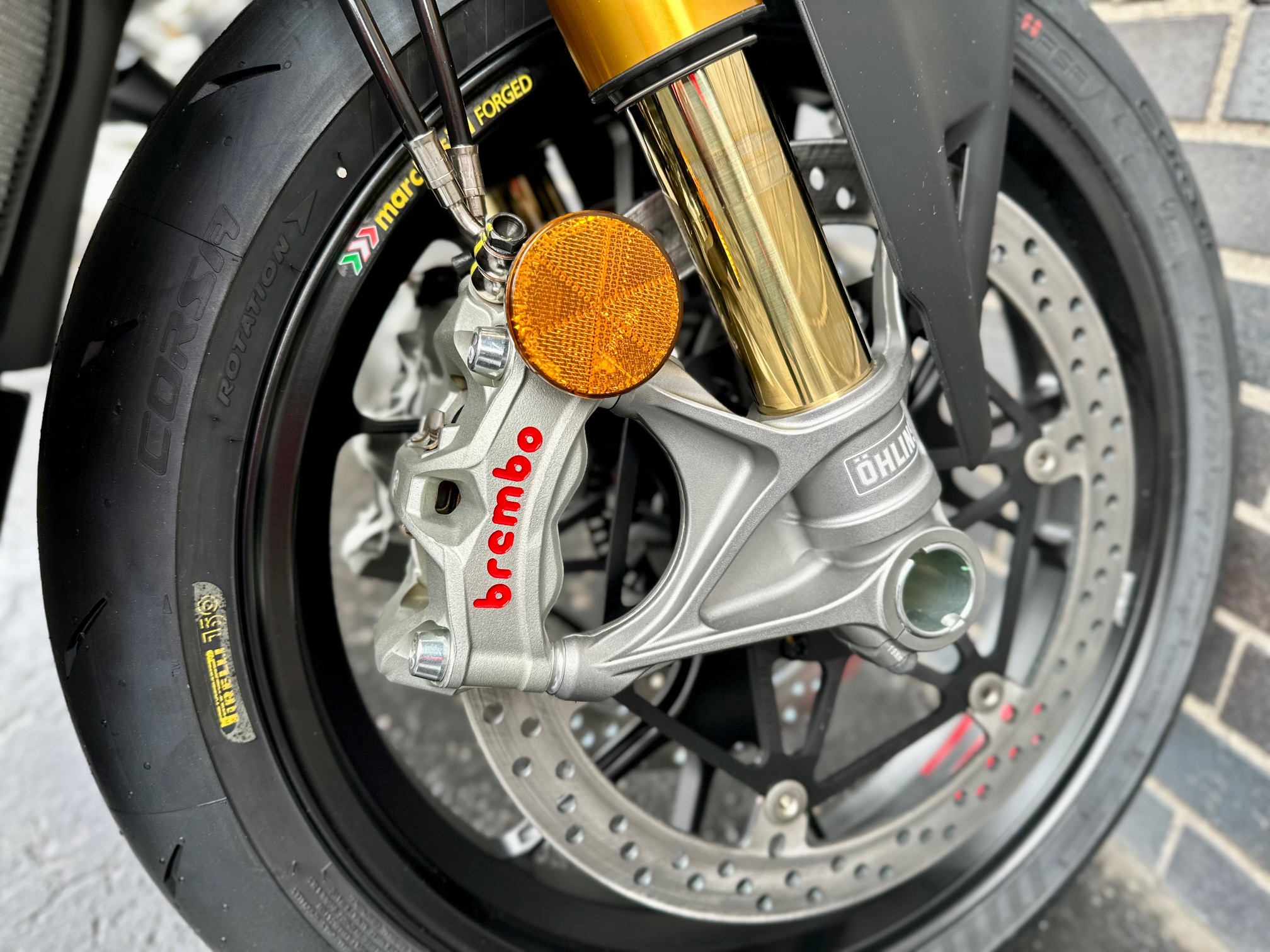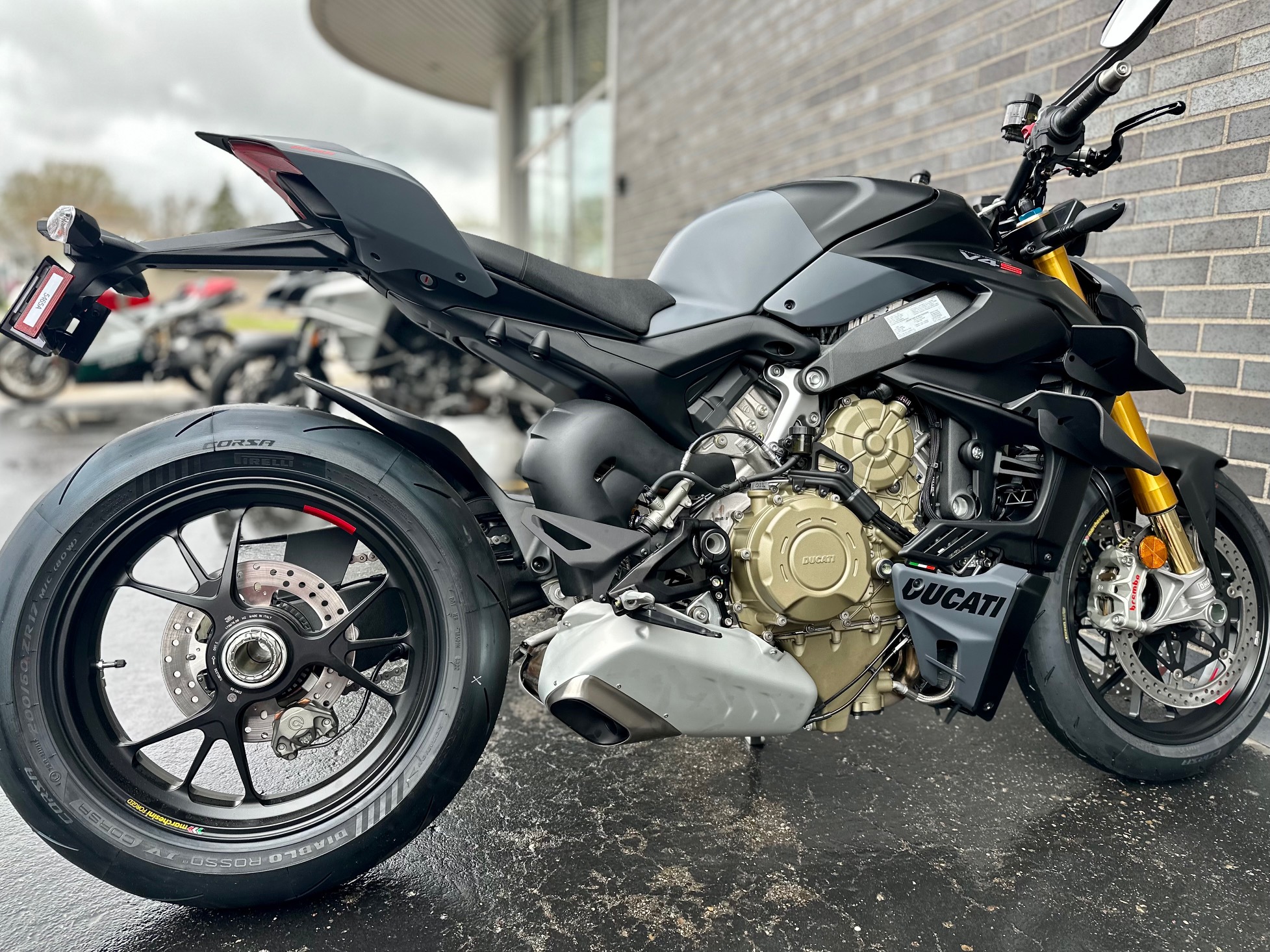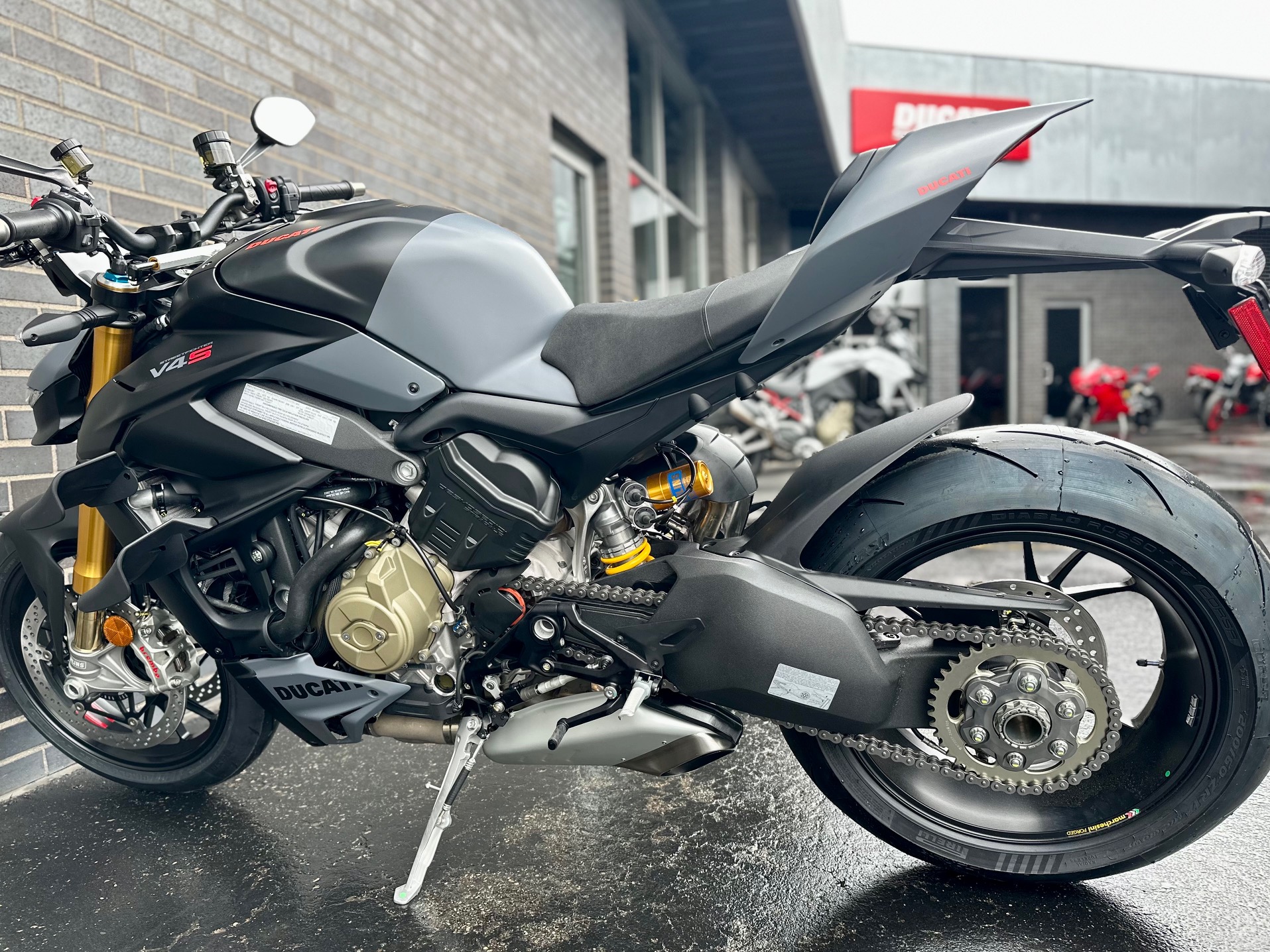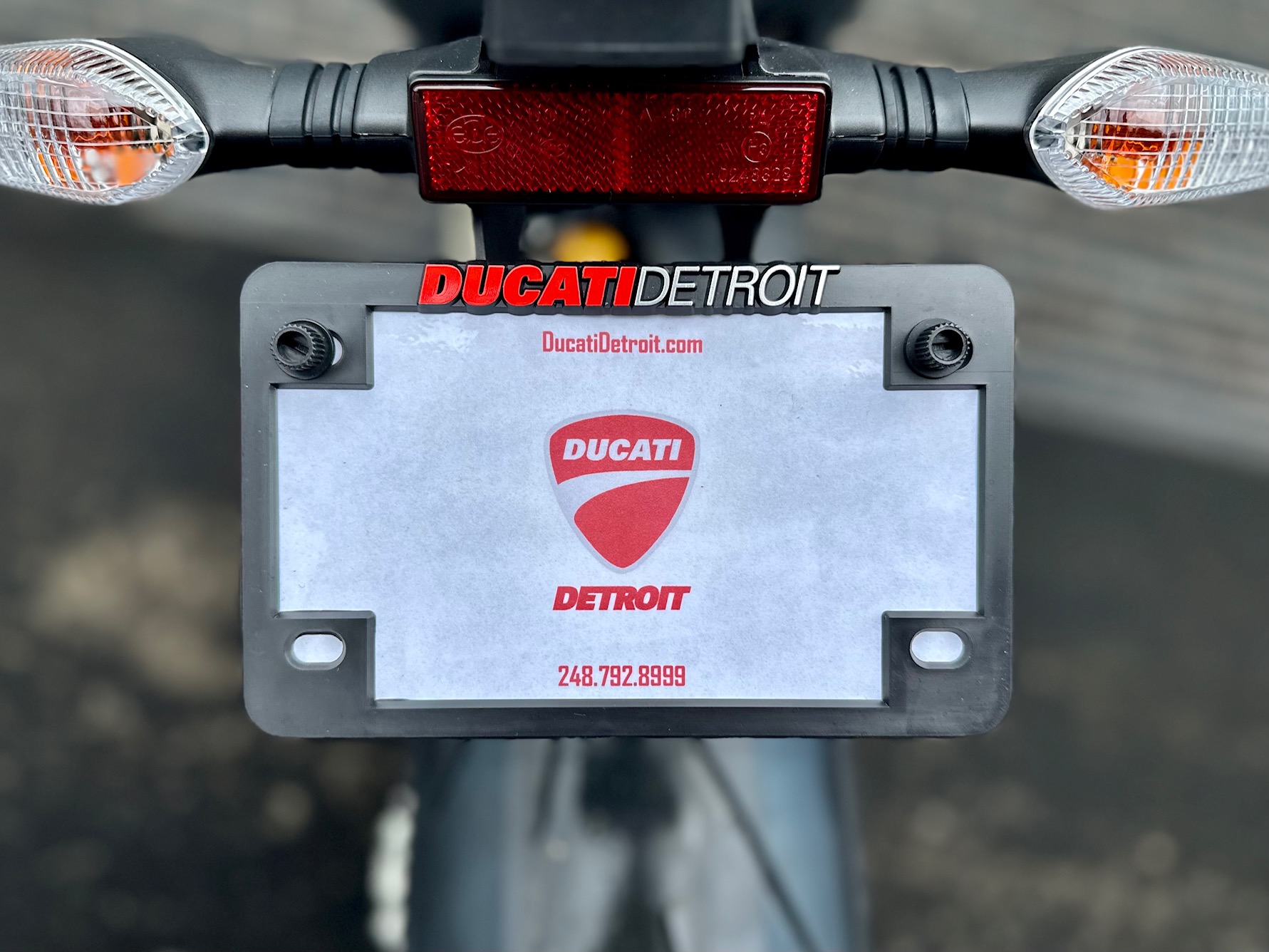’25 Streetfighter V4 S – Black
Streetfighter
$27,795.00+ Shipping
Setting a new performance benchmark in the super sports naked segment.
| Engine | Desmosedici Stradale 90° V4, rearward-rotating crankshaft, 4 Desmodromically actuated valves per cylinder, liquid cooled. |
|---|---|
| Displacement | 1,103 cc |
| Power | 208 hp @ 12,750 rpm |
| Torque | 91 lb-ft @ 11,500 rpm |
| Dry Weight | 397 lbs. |
The Fight Formula
The Streetfighter is the result of the “Fight Formula”: the Panigale V4 stripped of the fairings, with a high and wide handlebar, 392 lbs on the scale, powered by 1100 cc Desmosedici Stradale delivering 208 hp kept in hand by biplane wings and a complete electronic package.
The modern and technological Ducati naked bike has immediately enjoyed great success among motorcyclists all over the world, also confirmed by the positive feedback from the international media.
MotoGP Derived Electronics
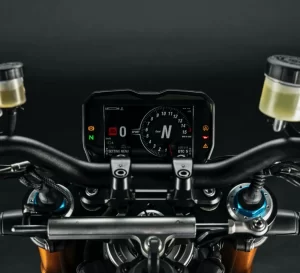
The latest-generation electronics package on the Streetfighter V4 is based on a 6-axis Inertial Measurement Unit (6D IMU) which instantly detects the bike’s roll, yaw and pitch angles.
The electronics package has controls for every part of the ride: some oversee start, acceleration and braking, others govern traction and others again lend a helping hand on corners and out-of-the-corner stretches.
- ABS Cornering
- Ducati Traction Control (DTC) EVO 2
- Ducati Slide Control (DSC)
- Ducati Wheelie Control (DWC) EVO
- Ducati Power Launch (DPL)
- Ducati Quick Shift up/down (DQS) EVO 2
- Engine Brake Control (EBC) EVO
- Ducati Electronic Suspension (DES) EVO
Operational parameters for each of these controls are associated by default with the three Streetfighter V4 Riding Modes. Riders can personalize parameters to suit their riding style or restore Ducati factory settings. DTC, DWC, DSC or EBC control levels can be adjusted quickly via the left switchgear.
Second-generation TFT instrumentation
The Streetfighter V4 features the same 5″ full-TFT high resolution color screen (186.59 PPI – 800xRGBx480) as the Panigale V4. The dashboard is dominated by the round virtual rev counter on the right. Desmosedici Stradale revs are displayed on a needle gauge.
Movement of the latter is accompanied by a white trail that acts as a ‘shift light’, changing color from white to orange and then red as the rev limit approaches.
The rider can call up two different lay-outs: ‘Track’ highlights the lap times and the rev counter scale makes the revs typical of track use more clearly visible; ‘Road’, instead, replaces lap times with info on the Ducati Multimedia System (DMS), where present, and the rev scale is more appropriate for road use.
Aerodynamics
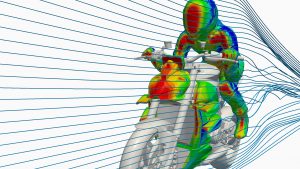
Fast, agile mixed-road performance demands maximum stability at high speed and when braking, reduced wheel-up during acceleration and minimized electronic control of the suspension set-up: that’s why Ducati Corse specialists have, together with the Ducati Style Centre, developed biplane wings for the Streetfighter V4.
The aerodynamics were developed using CFD (Computational Fluid Dynamics) simulation. The calculation method involved stationary simulation of flow and pressure to achieve increased downforce, especially on the front wheel.
To reduce lateral protrusion as much as possible, the aerodynamics team decided to adopt a ‘biplane’ configuration of limited ‘wingspan’ with upper and lower wings working independently.
Each appendage can be described as a square-plan mono-wing with a winglet on its outer tip. Moreover, the wings have been positioned as close as possible to the front wheel (near the radiator side panels) to maximize the anti wheel-up effect.
MotoGP-Derived Engine
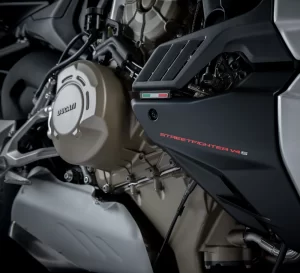
The Desmosedici Stradale was designed around the heart of the MotoGP V4 engine – its cylinder heads.
The fluid dynamics concept of the Desmosedici Stradale is based on the dimensions and geometry used in the Desmosedici GP bike, as is the engine layout: 90° V4 banked rearward 42°. This solution makes the engine extremely compact, allowing the centring of the masses and better integration into the bike.
